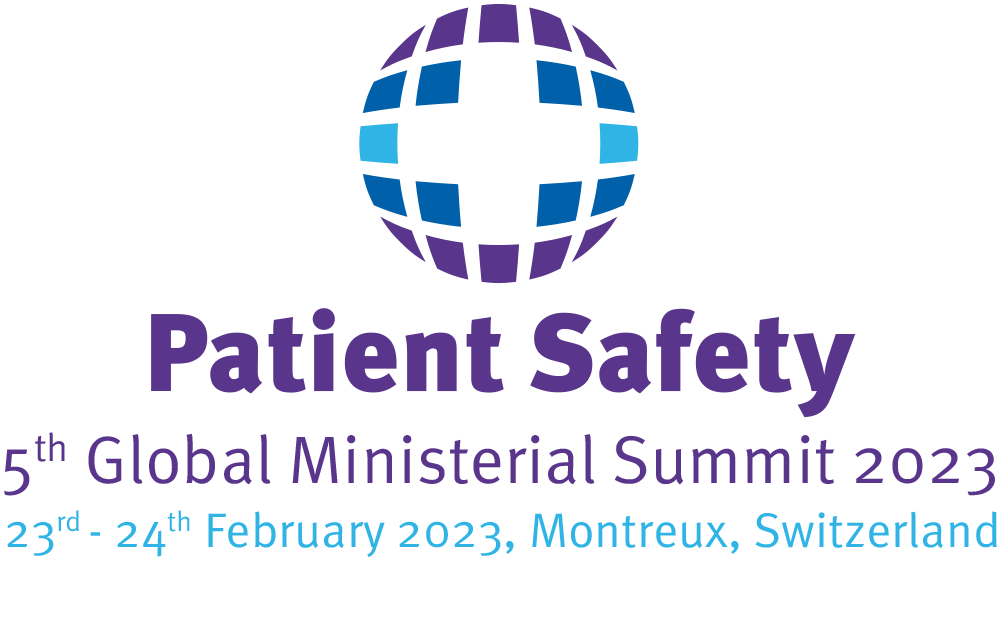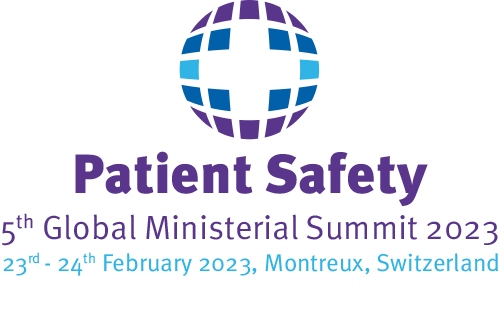Summit Host

Alain Berset
President of the Swiss Confederation
Head of the Federal Department of Home Affairs
Alain Berset was born in Fribourg on 9 April 1972. He studied Political Science and Economics at the University of Neuchâtel where he graduated in 1996, later obtaining a doctorate in 2005. He is married and the father of three children.
In 2003 Alain Berset was elected to the Council of States for the canton of Fribourg and was its president in the year 2008 / 2009. He was elected to the Federal Council by the United Federal Assembly on 14 December 2011. Since January 2012 he is head of the Federal Department of Home Affairs (i.a. Health, Social and Retirement Insurances, Food Safety and Veterinary Office, Statistics, Culture Affairs). On 6 December 2017 the United Federal Assembly elected him president of the Swiss Confederation for 2018. On 7 December 2022, he was once again elected president of the Swiss Confederation for 2023.
Keynote Speakers
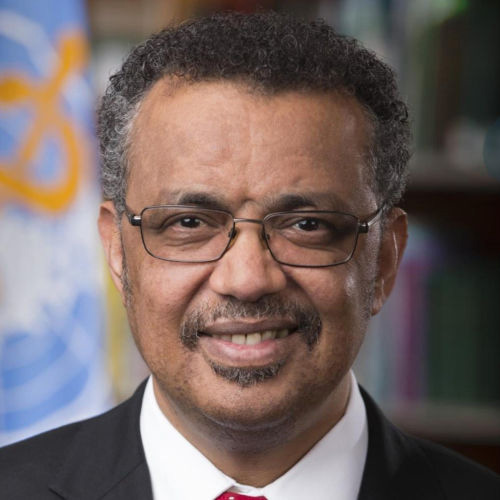
Dr. Tedros Adhanom Ghebreyesus
Director-General, WHO
Dr. Tedros Adhanom Ghebreyesus was born in Asmara, Eritrea, and graduated from the University of Asmara with a Bachelor of Biology, before earning a Master of Science (MSc) in Immunology of Infectious Diseases from the University of London, a Doctorate of Philosophy (PhD) in Community Health from the University of Nottingham and an Honorary Fellowship from the London School of Hygiene and Tropical Medicine.
Dr. Tedros served as Minister of Health of Ethiopia from 2005-2012 and from 2012-2016 as Minister of Foreign Affairs. At the Seventieth World Health Assembly in May 2017, he was elected WHO Director-General for a five-year term by WHO Member States, and was re-elected to a second term in May 2022 during the Seventy-Fifth World Health Assembly. Dr. Tedros was the first WHO Director-General elected from among multiple candidates by the World Health Assembly, and was the first person from the WHO African Region to head the world’s leading public health agency.
After taking office as WHO Director-General, Dr. Tedros initiated the most significant transformation in the Organization’s history, which has generated a wide range of achievements.
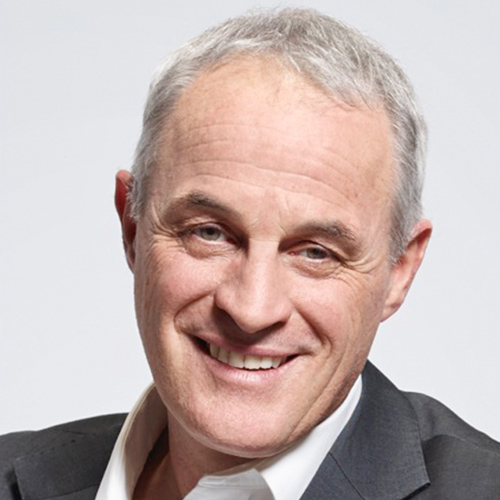
Prof. Didier Pittet, MD, MS, CBE
Professor of Medicine (hon), Faculty of Medicine, University of Geneva
Prof. Didier Pittet is the former Director of the Infection Control Program & WHO Collaborating Centre on Patient Safety, University of Geneva Faculty of Medicine, Switzerland. He holds Honorary Professorships at Imperial College (London), Hong Kong Polytechnic University School of Health Science (Hong Kong) and the First Medical School of the Fu (Shanghai), and Honoris causa (UCL Louvain, 2021). Prof. Pittet is the recipient of several international honors including a Commander of the British Empire (CBE) awarded by Her Majesty Queen Elisabeth II (2007) and the Legion d’Honneur (France) awarded by President Emmanuel Macron (2022), as well as awards from the Society for Healthcare Epidemiology of America (2008), the European Society of Clinical Microbiology and Infectious Diseases’ Award for Excellence (2009), the American Society for Microbiology (2016), the Robert Koch Award (2017), the Pasteur Medal (2020), and the Ayliffe Award (2022).
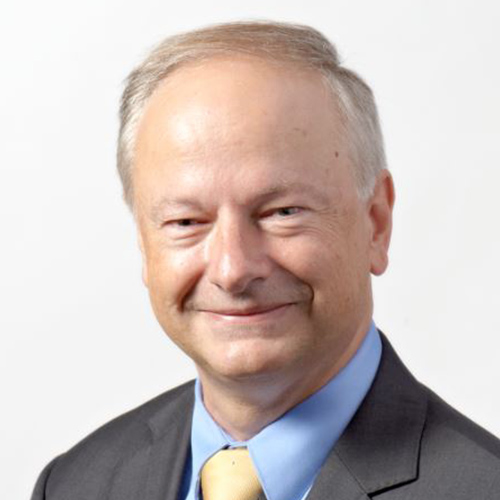
Dr. Anthony Staines
Patient Safety Program Director, Vaud Hospital Federation, Switzerland
After an MBA (Master of Business Administration) at INSEAD (Fontainebleau, France) and an MPA (Master of Public Administration) at IDHEAP (Lausanne, Switzerland), Anthony Staines obtained a Ph.D. in Management at University of Lyon (France). He is the author of a doctoral dissertation on the impact of hospital quality improvement programs on clinical outcomes.
He currently runs a portfolio of Patient Safety improvement projects for the Federation of Hospitals of Canton Vaud, in Switzerland, and advises a number of institutions on Patient Safety strategies and projects. He lectures on Quality Improvement and Patient Safety at IFROSS, University of Lyon, France. Together with Charles Vincent, he recently coauthored the Swiss National Report on Quality and Safety in Healthcare.

Joe Kiani
Founder, Patient Safety Movement Foundation, CEO Masimo
Joe Kiani’s desire to develop medical technology that improves patient care and decreases medical errors led him to co-invent what is known as modern pulse oximetry. Joe Kiani founded Masimo, a global medical technology company that develops and produces a wide array of industry-leading monitoring technologies, including innovative measurements, sensors, and patient monitors. He and his team hold over 600 patents and have introduced many firsts in noninvasive monitoring, hospital automation, connectivity, and telehealth. Joe Kiani is also the founder of the Patient Safety Movement Foundation, a nonprofit that works towards eliminating deaths from preventable medical errors around the world. In 2021, President Joe Biden appointed Kiani to the President’s Council of Advisors on Science and Technology.

Prof. Dr. phil. Lauren Clack
Professor of Implementation Science in Health Care, University of Zurich, Medical Faculty, Institute for Implementation Science in Health Care
Prof. Dr. phil. Lauren Clack is a Professor of Implementation Science in Health Care at the Medical Faculty, University of Zurich. She holds a PhD in Psychology from the University of Zurich and an MSc in Applied Ergonomics (Human Factors Engineering) from the University of Nottingham. From 2011 to 2020, she worked as a researcher and project leader, first at the University Hospitals of Geneva and then at the Division of Infectious Diseases and Hospital Epidemiology, University Hospital Zurich. She specializes in the application of Implementation Science methodology and human-centered design to improve the systematic integration of evidence-based infection prevention and patient safety interventions into care.

Prof. Sir Liam Donaldson
WHO Patient Safety Envoy, UK
He is recognised as an international champion of public health and patient safety. He was the foundation chair of the World Health Organisation’s World Alliance for Patient Safety, launched in 2004. He is a past vice-chairman of the World Health Organisation Executive Board. He is now the World Health Organisation’s Envoy for Patient Safety, Chairman of the Independent Monitoring Board for the Global Polio Eradication Programme, as well as Chairman of the Transition Monitoring Board of this Programme. In the UK, he is he is Chair of the Integrated Care System (ICS) for the North East and North, Cumbria, Professor of Public Health at the London School of Hygiene and Tropical Medicine. He was Chancellor of Newcastle University for 10 years until 2019.
Prior to this Sir Liam was the 15th Chief Medical Officer for England, and the United Kingdom’s Chief Medical Adviser, from 1998-2010. During his time in this historic post (established in 1855) he held critical responsibilities across the whole field of public health and health care. As the United Kingdom’s chief adviser on health issues, he advised the Secretary of State for Health, the Prime Minister and other government ministers. He has produced landmark reports which have set health policy and legislation in fields such as stem cell research, clinical governance, quality and safety of health care, infectious disease control, patient empowerment, poor clinical performance, smoke free public places, medical regulation, and organ and tissue retention. He led the government’s response to the H1N1 influenza pandemic. He has published over 270 papers in peer-reviewed journals and is author of a standard textbook of public health that has been in continuous print for nearly 40 years and co-author of the history of the Chief Medical Officers of England. He has made hundreds of media appearances as part of his professional roles. Sir Liam initially trained as a surgeon in Birmingham and went on to hold posts in academia, public health practice and senior management. Sir Liam has received many public honours: 17 honorary doctorates, eight fellowships from medical royal colleges and faculties, and the Gold Medal of the Royal College of Surgeons of Edinburgh. He was the Queen’s Honorary Physician between 1996 and 1999. He was knighted in the 2002 New Year’s Honours List.
Moderator
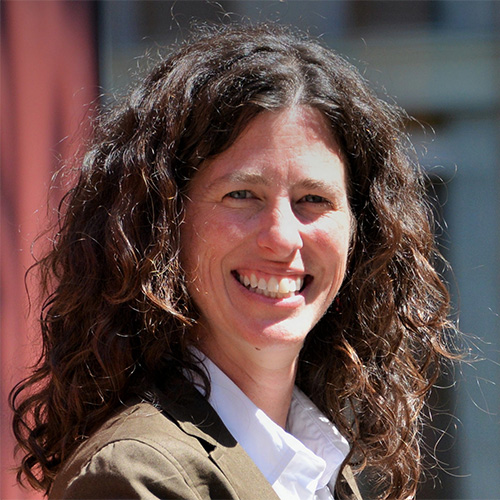
Prof. Dr. L. Suzanne Suggs, PhD, MSc, BBA, CHES
Professor of Social Marketing, Institute of Communication and Public Policy and Institute of Public Health, Faculty of Communication, Culture and Society, Università della Svizzera italiana, Lugano, Switzerland and Vice-President, Swiss School of Public Health
Prof. Dr. L. Suzanne Suggs is a Full Professor of Social Marketing at the Università della Svizzera italiana (USI) in Lugano Switzerland where she leads the BeCHANGE research group. She is also Vice-President of the Swiss School of Public Health (SSPH+) and a Visiting Reader at Imperial College London, Institute of Global Health Innovation, Faculty of Medicine. She is a Certified Health Education Specialist, co-speaker of the Swiss Academies of Arts and Sciences Expert Group on Science Communication and was a member of the Swiss National COVID-19 Science Task Force during its two-year mandate.
Her research focuses on health communication, determinants of health behaviours, and strategies to modify health related behaviors, concentrating mainly on vaccination acceptance and vaccine hesitancy, eating behaviors, and physical activity.
Previously, she served as an Assistant Professor of Health Communication at Emerson College and Adjunct Assistant Clinical Professor at Tufts University School of Medicine, Department of Public Health and Family Medicine in Boston, Massachusetts. She was a post-doctoral research fellow at McMaster University, Department of Clinical Epidemiology and Biostatistics, in Ontario, Canada and held positions in several for-profit health companies.
Session Chairs
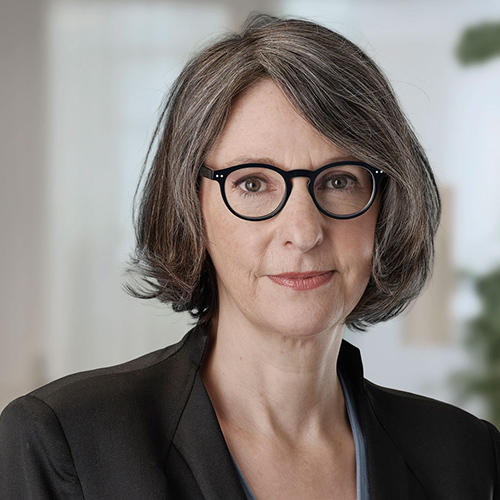
Anne Lévy
Director-General of the Federal Office of Public Health (FOPH)
Anne Lévy has been Director-General of the Federal Office of Public Health FOPH since 1 October 2020. She holds a degree in political science from Lausanne and an executive MBA from the University of Fribourg.
She has worked in public health for more than 20 years, first in drug policy on a municipal level, then at an international level at the UN in New York, and subsequently in addiction prevention at the national level. After that, she moved to the cantonal level, working for the Basel-Stadt health protection agency in a role that included food safety, veterinary and dental medicine. Latterly she spent five years as the CEO of the University Psychiatric Clinics (UPK) Basel.
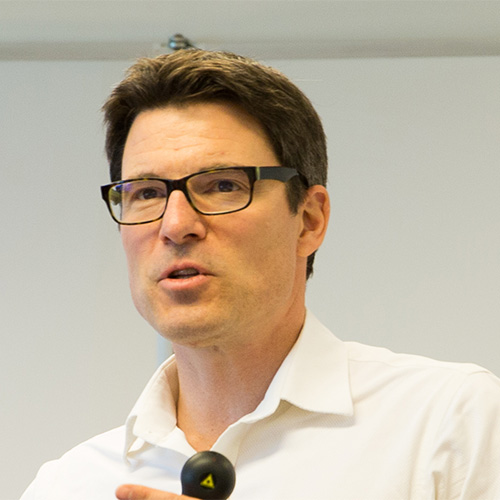
Peter Beyer
Deputy Executive Director, Global Antibiotic Research & Development Partnership (GARDP)
Peter is a public health expert who joined GARDP from the World Health Organization (WHO) where he led the unit responsible for developing global initiatives to foster the development and access to new antimicrobial treatments. He was responsible for WHO’s work on intellectual property and access to medicines, setting up the tripartite collaboration among the World Intellectual Property Organization (WIPO), the World Trade Organization (WTO) and WHO. He also provided technical assistance to countries to facilitate access to affordable HIV and hepatitis treatments. Peter chairs the Expert Advisory Group of the Medicines Patent Pool that assesses the terms and conditions of all proposed licence agreements. Peter is a trained lawyer and was admitted to the bar in Berlin in 2002. He holds a PhD from the University of Freiburg, Germany on European environmental law and has extensive experience in international negotiations. As a Legal Advisor to the Swiss Federal Institute of Intellectual Property in Bern, he negotiated bilateral free trade agreements and was responsible for the bilateral dialogue between Switzerland and China on intellectual property. During his time with the Ecologic Institute in Berlin he was an adviser to the German Ministry of the Environment in international treaty negotiations and drafted the German law on CO2 emissions trading. Most importantly, Peter was instrumental in setting up GARDP as well as the AMR Action Fund, with his wealth of knowledge and expertise.
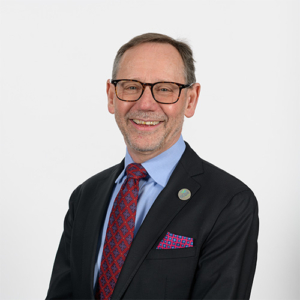
Prof. Jeffrey Braithwaite
Professor of Health Systems Research; Founding Director of the Australian Institute of Health Innovation; Director of the Centre for Healthcare Resilience and Implementation Science, Macquarie University
Prof. Braithwaite (MBA, PhD, FIML, FACHSM, FAHMS, FFPHRCP, FAcSS, FRACMA) is a leading health services and systems researcher, internationally recognised for an extensive body of work in change and improvement, including more than 742 refereed publications and 1,335 total publications. He has been conferred 62 awards, for example, the 2021 Sidney Sax Medal by the Australian Healthcare and Hospitals Association for improving the delivery, quality, and safety of healthcare. He has presented at or chaired international and national conferences, workshops, symposia and meetings on more than 1,355 occasions, including over 126 keynote addresses. Prof. Braithwaite is the recipient of career research funding of $189,962,539.60 spread over 124 grants.
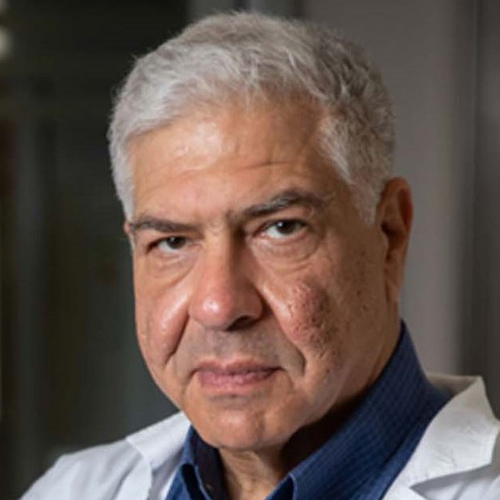
Prof. Yehuda Carmeli
Head, National Institute for Antibiotic Resistance and Infection Control, Tel Aviv Medical Center, Tel Aviv University, Israeli Ministry of Health
Yehuda Carmeli, MD, MPH, is the director of the National Institute for Antibiotic Resistance and Infection Control in the Israeli Ministry of Health and Professor in the Sackler Faculty of Medicine, Tel Aviv University. He attended medical school at Ben Gurion University in Israel and received a master’s degree from Harvard School of Public Health. He completed residency in medicine at Hadassah University Hospital, Jerusalem, clinical fellowship in medicine at Massachusetts General Hospital in Boston, and clinical and research fellowships in infectious diseases at Beth Israel Deaconess Medical Center in Boston, MA. Dr. Carmeli is the author of over 350 peer-reviewed research articles and is the recipient of the Finland research award of the Massachusetts Infectious Disease Society, and the John T. Smith award on research of new quinolones, the ICAAC program award for Pathogenesis of Microbial Diseases, the Society of Healthcare Epidemiology (SHEA) Mentor Award and the International scholar award, and the Dutch Working Party on Antibiotic Policy (SWAB) award.
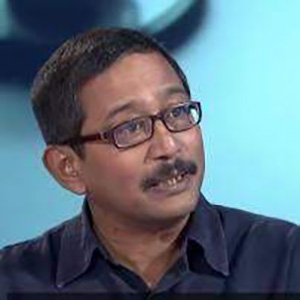
Sudipto Chatterjee
Adjunct professor and Consultant, National Institute of Advanced Studies, Bangalore, India; WHO Mental and Substance Use Division, Geneva; Parivartan Trust, India
Dr. Sudipto Chatterjee is a psychiatrist based at the National Institute of Advanced Studies in Bangalore, India. He is also a Consultant to the WHO Mental and Substance Use Division at Geneva for the Special Initiative in Mental Health program and to the Parivartan Trust in India.
He has made important and original scientific contributions in global mental health in relation to developing community based care for people with serious and common mental disorders in resource scarce settings through innovative task shifting strategies in India and in a number of low and middle income countries.
His continued interests include efforts to reduce the treatment gap and enhance the social inclusion of people with mental disorders effectively and at scale globally.
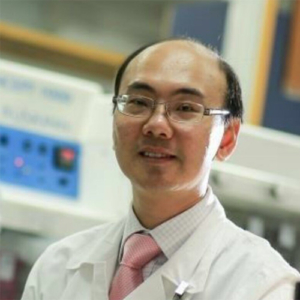
Dr. Vincent Cheng
Infection Control Officer and Chief of Service, Department of Microbiology, Queen Mary Hospital, Hong Kong
Vincent Cheng graduated from the Faculty of Medicine at The University of Hong Kong in 1994 with distinction in Medicine, and conferred Doctor of Medicine with Sir Patrick Manson Gold Medal for the best MD thesis by The University of Hong Kong in 2012. He is currently the International Advisory Board member of Journal of Hospital Infection and Infection Control Hospital Epidemiology. He is also Honorary Professor, Department of Microbiology, The University of Hong Kong. He has published over 330 international peer reviewed original articles in the areas of clinical infectious disease and infection control. He also named by the Clarivate Analytics as ‘2021 & 2022 Highly Cited Researchers’ that rank in the top 1% by citations for field and year in the Web of Science.
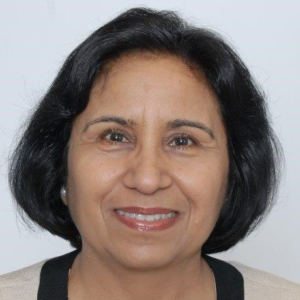
Dr. Neelam Dhingra
Head, Patient Safety Flagship, World Health Organization, Geneva, Switzerland
Dr Neelam Dhingra, MD, heads the WHO Transformative Flagship Initiative “A Decade of Patient Safety 2021-2030” at WHO HQ, Geneva, Switzerland. In this role, Dr Dhingra leads WHO’s global efforts in providing strategic leadership on patient safety within the context of UHC. This includes implementation of 2019 WHA resolution ‘Global Action on Patient Safety’, World Patient Safety Day, 2021 WHA approved ‘Global Patient Safety Action Plan 2021-2030’, Global Patient Safety Challenge: Medication Without Harm; Global Patient Safety Network; Leadership and Safety Culture; Patients for Patient Safety; Education and Training; and Reporting and Learning. Dr Dhingra led the WHO Blood Safety unit after joining WHO HQ/Geneva in 2000 till 2014. Since 2015, Dr DHINGRA is coordinating WHO global efforts in the areas of patient safety and risk management. Prior to joining WHO, Dr Dhingra served as a faculty in tertiary university hospital in New Delhi, India for 14 years, also coordinating transfusion services, after medical and specialist qualifications from New Delhi and UK fellowships.
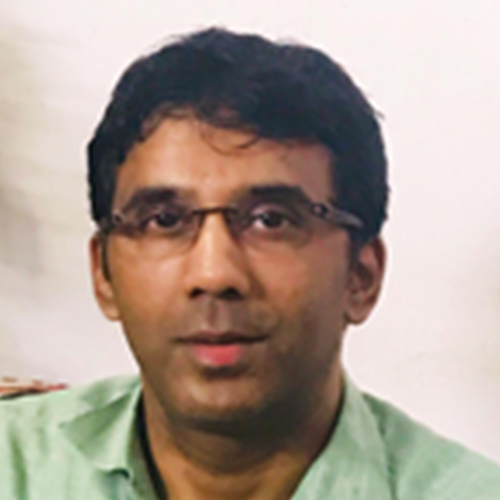
Dr. K. Abdul Ghafur
Consultant in Infectious Diseases, Apollo Cancer Institute , Chennai
Dr. Abdul Ghafur is a Senior Consultant and Adjunct Professor in Infectious diseases at the Apollo Hospitals, Chennai, India. He is the primary author and coordinator of the “Chennai Declaration”, a globally renowned document and initiative by medical societies in India, to tackle the challenge of antimicrobial resistance from an Indian perspective. Dr. Ghafur is the managing Trustee of “AMR Declaration Trust”- a public charitable Trust founded on the principles of Chennai Declaration. He is a former technical advisory committee member for the national antibiotic policy of the Indian Ministry of Health. Dr. Ghafur is very active in the academic, policy, research, and political aspects of infectious diseases. Dr. Ghafur is an advisory and jury member of the “Longitude Prize on AMR”.
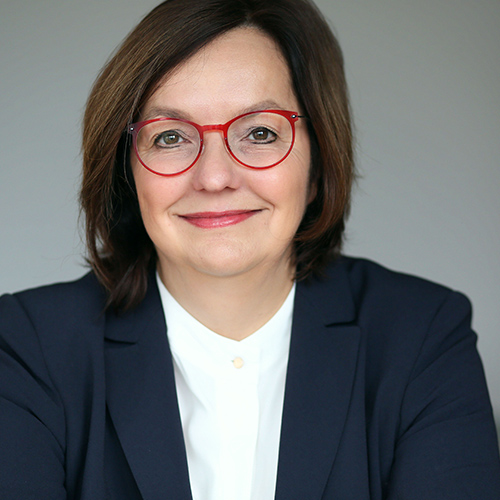
Dr. med. Ruth Hecker
Chairwoman of the Executive Board, German Coalition for Patient Safety (Aktionsbündnis Patientensicherheit e.V.); Chief Patient Safety Manager, University Hospital Essen
Ruth Hecker studied human medicine at the Ruhr University Bochum. She completed her specialist training in anesthesiology at the Marienhospital in Herne and at the Catholic Clinic in Bochum. In addition to her work at the Medical Association of Westphalia-Lippe, she studied health sciences in Bielefeld. She earned the additional qualification in medical quality management and was a DIN EN ISO auditor for many years. Since 2011 she has been in charge of clinical risk management at the University Medical Center in Essen, where she was appointed Chief Patient Safety Officer. Since 2019, Dr. Ruth Hecker has chaired the German Coalition for Patient Safety.
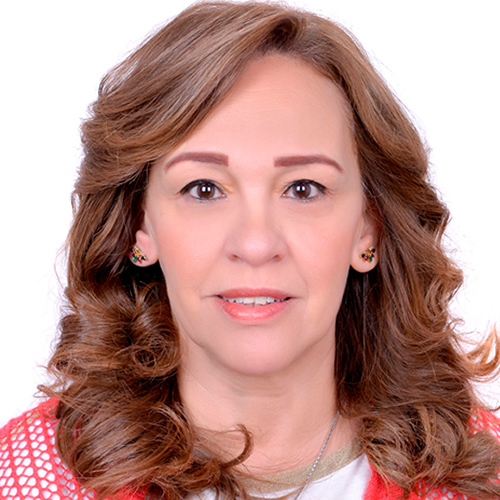
Dr. Maha Ismail
Former, Regional Adviser of AMR and IPC
Dr. Maha Ismail is the former Regional Adviser for Antimicrobial Resistance (AMR) and Infection Prevention and Control at the World Health Organization, Eastern Mediterranean Region in Cairo, Egypt. She holds master’s and Doctoral Degrees in Public Health and Epidemiology and has more than 60 publications in peer reviewed journals and presented in about 40 international meetings and conferences.
Dr. Ismail professional focus includes providing technical expertise and capacity building to the Ministries of Health and national stakeholders in limited resourced countries to develop and implement national plans for antimicrobial resistance and infection prevention and control programs. Her areas of expertise are AMR surveillance, surveillance and prevention of healthcare-associated infections, antimicrobial stewardship programs, and strengthening national and facility level infection prevention and control programs.
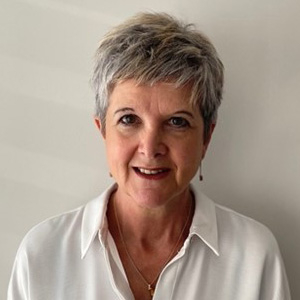
Carrie Marr
BSc (Nursing), DipEd, MSc (OrgCons) FACHSM
Adjunct Professor University of Technology, Sydney and Strategic Health Advisor and Patient Safety Leader
Carrie has extensive experience in providing strategic leadership to safety and quality across healthcare sytems. She has led strategic change, patient safety and quality improvement work in Scotland and latterly in Australia as Chief Executive of the NSW Clinical Excellence Commission, the New South Wales Ministry of Health lead agency for safety and quality.
Carrie has focused on supporting Boards and Executive Teams to integrate and embed improvement and innovation into healthcare systems to enable frontline teams to improve outcomes for patients, families and communities. She believes that developing learning systems and enabling organisations and systems to build the capability and capacity needed to sustain improvement is crucial to support reform and innovation.
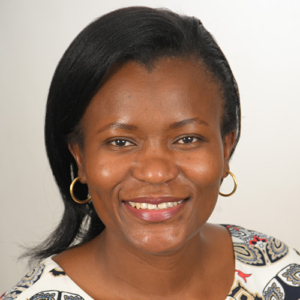
Loice Achieng Ombajo MBS
Infectious Disease Specialist, Senior Lecturer at the University of Nairobi Department of Medicine and Co-Director of the Center for Epidemiological Modelling and Analysis (CEMA).
She has been a leading voice in informing the public health response to infectious disease threats in Kenya and beyond. She has led the National COVID-19 case management committee and served as a member of both the COVID 19 National task force and Education task forces. Loice also leads work on understanding the ever emerging threat of antimicrobial resistance in the country and on improving antimicrobial stewardship. She has served as a member of the WHO working group of the AWaRe categorisation of antibiotics for the essential medicines list and is a member of the WHO Expert Advisory Panel on drug evaluation.
Loice’s research interests include Monitoring and Preventing antimicrobial resistance, Antimicrobial stewardship and HIV where she is currently leading large clinical trials on improved antiretroviral regimens including research on cardiovascular and bone disease in older persons living with HIV. Her focus is on supporting data driven clinical and public health policy decisions.
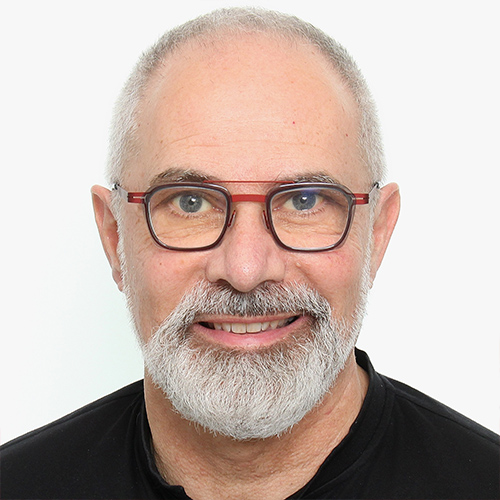
Dr. Pierre Parneix
Medical Doctor specialized in public health and infection control, Head of the Nouvelle Aquitaine healthcare-associated infection control center (CPIAS NA), University Hospital of Bordeaux
Pierre Parneix is working in the field of infection control since 1992.
The CPIAS NA is in charge of two French national missions infectionprevention.fr), one (SPARES) dedicated to amtimicrobial resistance surveillance and prevention in hospitals. The other (MATIS) (is in charge of communication and intervention support in the field of infection prevention.
Pierre Parneix has been president of the French Society of Hospital Hygiene (SF2H) from 2015 to 2019 and took care of the international relations of the SF2H for 10 years. In 2021, he resumed his duties as president of the SF2H.
He has been a member of the independent mission led by Professor Didier Pittet and created by president Emmanuel Macron to review the French Covid crisis management.
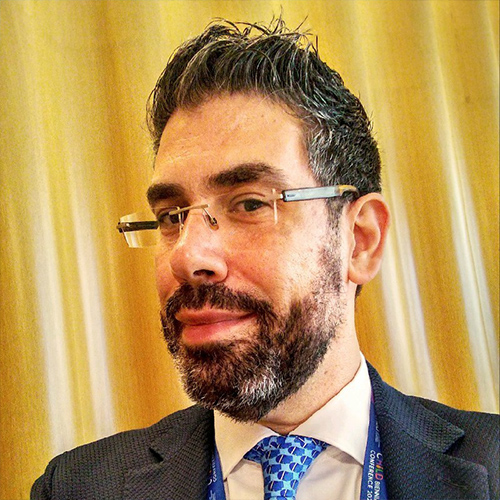
Prof. Nick Sevdalis
Professor of Implementation Science and Patient Safety; Director, Centre for Implementation Science, King’s College London, UK
Nick Sevdalis is Co-Director, Centre for Behavioural and Implementation Science Interventions, Yong Loo Lin School of Medicine, National University of Singapore, Singapore and Specialty Chief Editor, Frontiers in Health Services, Implementation Science Section.
A psychologist by training, with specialisation in organisational psychology and a PhD in behavioural decision science, Nick held academic appointments in the Department of Surgery and Cancer at Imperial College London (2004-15) and senior editorial roles in several peer-reviewed journals, including BMJ Simulation and Technology-Enhanced Learning (2014-19) and Implementation Science (2012-21) – prior to his current roles at King’s, NUS and Frontiers.
Nick’s vision is to achieve population health and high-quality healthcare delivery through application of behavioural and implementation sciences and partnership development between stakeholders in academia, health services, charitable organisations and industry. His research is situated within the multidisciplinary space of implementation and improvement sciences, and applied psychology and has been disseminated in over 400 publications to-date.
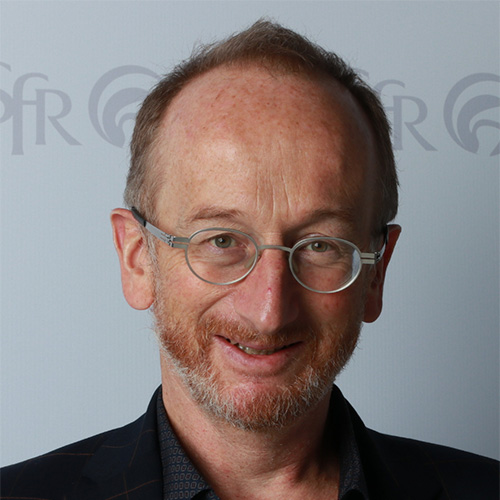
Prof. Pierre Tattevin
Chair of the Alliance for the Prudent Use of Antibiotics (APUA), Vice-President of the French Society of Infectious Diseases; Head of the Infectious Diseases & ICU Department, Rennes University Hospital
Prof. Pierre Tattevin, MD, PhD, is a 54-year-old infectious diseases (ID) physician trained in Paris (fellowship), Rennes (PhD), and San Francisco (post-doc). He has worked during several years in different sub-Saharan African countries, including Mozambique (French cooperation ministry, 1995-1996), Tanzania (Doctors of the world, head of mission in Bukoba, 2002-2006), with currently active projects in Liberia, Cameroon, and Burkina Faso. His primary interests include the fight against antimicrobial resistance through antimicrobial stewardship programmes in low-and-middle income countries. He co-authored >550 papers indexed in Pubmed, mostly as a first or last author. His H-index is 51.

Prof. Charles Vincent
Professor of Psychology, University of Oxford
Charles Vincent trained as a Clinical Psychologist and originally worked in the British NHS. Since 1985 he has carried out research on the causes of harm to patients, the consequences for patients and staff and methods of improving the safety of healthcare. He established the Clinical Risk Unit at University College in 1995 before moving to the Department of Surgery and Cancer at Imperial College in 2002. He is the editor of Clinical Risk Management (BMJ Publications, 2nd edition, 2001), author of Patient Safety (2nd edition 2010) and author of many papers on medical error, risk and patient safety. With Rene Amalberti he published ‘Safer healthcare: strategies for the real world’ Springer, Open Access (2016). In 2014 he took up a new most as Health Foundation professorial fellow in the Department of Psychology, University of Oxford.
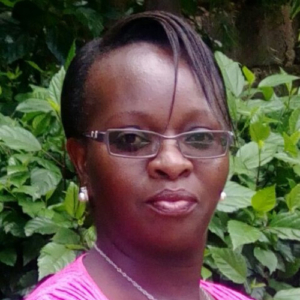
Dr. Evelyn Wesangula
Senior Antimicrobial Resistance Control Officer, East Central and Southern Africa Health Community (ECSA-HC)
Evelyn is a pharmacist with a MSc in Tropical and Infectious Diseases with more than fifteen years of experience at the Ministry of Health in Kenya. She successfully championed the development and implementation of the National Policy and Action Plan for Antimicrobial Resistance. During her tenure as the Head of the Patient and Health Workers Safety Division, she led the development of the first National Patient Safety, Health Workers Safety and Quality of Care Policy and Action Plan. Evelyn currently works with the East Central and Southern Africa Health Community (ECSA- HC) as a senior AMR Control Specialist. She has worked as a consultant with the World Health Organization developing guidance documents supporting implementation of NAPs. She is a Chatham House Africa Public Health Leaders Fellow, a Fleming Fund Policy Fellow and recentrly recognized as an International Ambassador of the Society of Hospital Epidemiology of America.
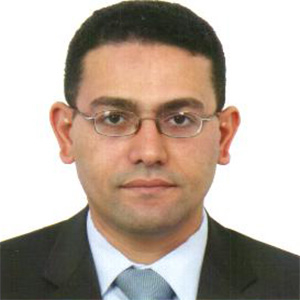
Dr. Bassem Zayed, MD, MPH, CIC
Coordinator, Antimicrobial Resistance and Infection Prevention and Control, World Health Organization Jordan Office
Dr. Zayed is a medical doctor from Egypt and has his post-graduate qualification in Public Health (MPH) from Johns Hopkins University, USA. He is a board certified in IPC, and a member of many international organizations and societies, such as the Infectious Disease Society of America (IDSA), the Society for Healthcare Epidemiology of America (SHEA) and the European Society for Clinical Microbiology & Infectious Disease (ESCMID). Dr. Bassem Zayed has been the SHEA 2015 International Ambassador in recognition of his efforts to advancing infectious disease epidemiology and IPC. He is currently a member of the SHEA External Affairs Committee.
Dr. Zayed has more than two decades of experience in public health, Infection Prevention & Control (IPC), antimicrobial resistance (AMR), and communicable disease epidemiology. His research interests and publications include interventions to curb AMR & improve IPC and patient safety, surveillance of antimicrobial resistance and healthcare associated infection (HAI), antimicrobial consumption, use & stewardship programs, patient safety, injection safety and prevention of surgical site infections.
Speakers
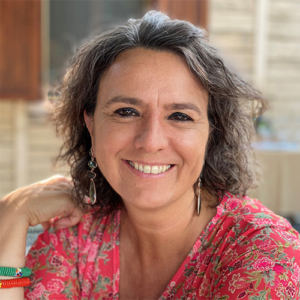
Benedetta Allegranzi
Adjoint professor, infection prevention and control programme, Faculty of medicine, University of Geneva and technical lead, WHO infection prevention and control Hub and Taskforce, WHO, Switzerland
Benedetta Allegranzi is an infectious diseases specialist, with Diplomas in Tropical Medicine and Hygiene and Clinical Research. From 1994 to 2006, she worked as infectious diseases and infection prevention and control (IPC) specialist and assistant professor at the University of Verona, Italy, and other countries.
Since 2006, she works at the World Health Organization (WHO) HQ, as the technical lead of the IPC Hub and the IPC Taskforce and co-lead of the IPC pillar of the WHO response to the COVID-19 pandemic.
Benedetta Allegranzi is also Adjoint Professor at the Global Health Institute and at the Infection Control Programme, Faculty of Medicine, University of Geneva.
She is leading or senior author of 67 WHO official publications, and author or co-author of over 200 scientific publications, and more than 20 book chapters.
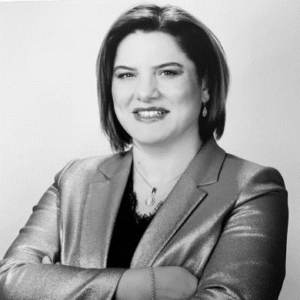
Prof. Emine Alp
Professor in Infectious Diseases and Clinical Microbiology, Faculty of Medicine, University of Ankara Yıldırım Beyazıt
Emine ALP, MD, PhD, is Professor of Infectious Diseases and Clinical Microbiology at the University of Ankara Yıldırım Beyazıt, Ankara, Türkiye. She had her PhD about control of healthcare-associated infections with multi-drug resistant pathogens from Radboud University in the Netherlands in 2010. In Türkiye, she served for three years (2018-2021), as the Deputy Minister for Health responsible for health systems management and service delivery, programs management, emergency management, pandemic preparedness, infectious disease epidemiology and response, health promotion and protection, HIV/AIDS, program evaluation/impact assessment. Over twenty years’ experience in teaching infectious diseases surveillance, and infection control in hospitals at graduate levels; over 140 publications in peer-reviewed international health journals. Graduate of Cukurova University, Turkey (MD), and Erciyes University, Turkey (Specialty in Medicine). Former university hospital where she worked was awarded by European Hand Hygiene Excellence Award/2019 with her 20-years leadership and success in infection control of healthcare-associated infections and hand hygiene adherence of healthcare workers.
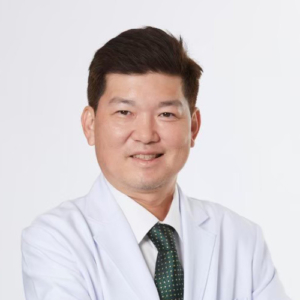
Prof. Anucha Apisarnthanarak, MD
Professor, Thammasat University Hospital
Dr. Anucha Apisarnthanarak is current the Professor and Chief of Infectious Diseases Division at Thammasat University Hospital. He also serves as an Adjunct Visiting Professor at Division of Infectious Diseases, Washington University School of Medicine, USA. Dr. Apisarnthanarak’s research focus included infection prevention in resource-limited setting, infection control to prevent multi-drug resistant microorganisms as well as outbreak investigations. He published more than 250 peer-review articles and more than 20 peer-review book chapters. He has been a key committee member of many national and international societies including Thai National Nosocomial Infection Group, Society of Healthcare Epidemiology of America, and Asia Pacific Society of Infection Control. Dr. Apisarnthanarak also serves as editorial board for key infectious diseases and infection control journals including Clinical Infectious Diseases, Infection Control and Hospital Epidemiology and American Journal of Infection Control.

Prof. Daniel Benamouzig
Professor at Sciences Po, Paris, Chair of the “Chaire Santé”
Daniel Benamouzig is Professor of sociology at Sciences Po, Paris. He is Director of Research at the CNRS (Centre de Sociologie des Organisations). He holds the Health Chair at Sciences Po and is President of the Scientific Council of the École des Hautes Études en Santé Publique (EHESP). From 2020 to 2022, he was a member of the Covid Scientific Council19 and has been a member of numerous bodies in the field of public health. He is currently a member of the Conseil national de l’alimentation (CNA). His work focuses on institutions and the regulation of the health sector. Daniel Benamouzig is particularly interested in economic actors and reasoning. He is the author of numerous scientific articles and several books, including, with Joan Cortinas-Munos, Des Lobbys au menu, les entreprises agroalimentaires contre la santé publique, published in 2022.
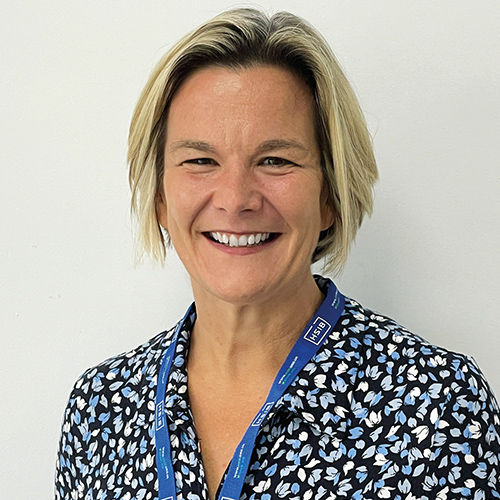
Dr. Rosie Benneyworth
Interim Chief Investigator, Healthcare Safety Investigation Branch
Rosie joined HSIB in August 2022 as interim Chief Investigator.
She has a longstanding interest in improving the quality, safety, and care that people receive. Rosie previously was the Chief Inspector of Primary Medical Services and Integrated Care for the Care Quality Commission.
Rosie was a GP for 15 years, and has worked in a variety of senior Executive and Non-Executive roles in healthcare including Vice Chair of the National Institute for Health and Care Excellence.
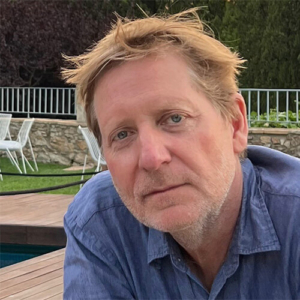
Prof. Christopher Butler
Professor of Primary Care, Nuffield Department of Primary Health Care Sciences and Professorial Fellow in Primary Care, Trinity College, University of Oxford
Chris Butler qualified in medicine form the University of Cape Town. His research mainly focusses the diagnosis and management of common infections, especially the appropriate use of antimicrobials and point of care diagnostics to combat antimicrobial resistance. He has led >30 clinical trials, including the PRINCIPLE and PANORMAMIC trials of treatments for COVID in the community, and leads for primary care in the European Clinical Research Alliance on Infections Diseases (ECRIAD), and co-coordinates the ECRAID-Prime trial platform. He was the patient-nominated Royal College of General Practitioners Wales General Practitioner or the Year in 2019, and won the Royal College of GPs Research Paper of the year in 2020 and as published >500 scientific papers.
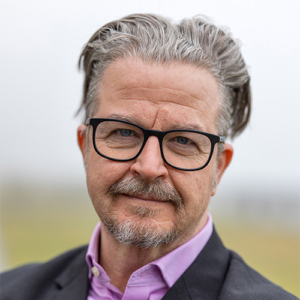
Howard Catton, RN, MA, BS (Econ) (Hons)
Chief Executive Officer, International Council of Nurses
Howard was appointed the Chief Executive Officer of the International Council of Nurses (ICN) in February 2019. He is committed to ensure that ICN effectively represents nursing worldwide, advances the nursing profession, promotes the wellbeing of nurses and advocates for health in all policies. He joined ICN in April 2016 as the Director, Nursing, Policy and Programmes.
Throughout his career Howard has worked extensively on issues relating to the Nursing and Healthcare Workforce. He has led ICN’s work to respond to and support nurses globally during the pandemic and to support nurses facing disasters and emergencies through the ICN Humanitarian Fund.
Howard qualified as a Registered Nurse in 1988 and held a variety of nursing posts in England and abroad. He studied Social Policy at Cardiff University (BSc Econ Hons) and Industrial Relations at Warwick University (MA). For 10 years Howard was Head of Policy & International Affairs at the Royal College of Nursing in the UK.
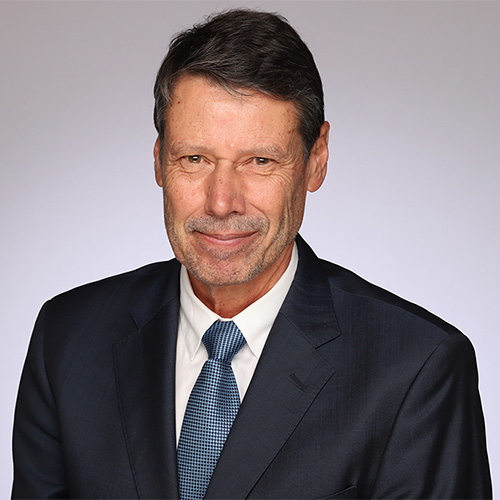
Pierre Chopard
President of the Swiss Federal Quality Commission, Associate Professor in the Department of Rehabilitation and Geriatrics, Faculty of Medicine, University of Geneva (2017-2022)
Pierre Chopard, MD, MSc was the head of the Quality of Care Service at the Geneva University Hospitals from 2007 to 2022 and Associate Professor in the Department of Rehabilitation and Geriatrics, Faculty of Medicine, University of Geneva. His specialty is internal medicine and he has a master’s degree in Health Administration from the University of Montreal. He has over 20 years’ experience in the field of Quality management. He has developed university quality and safety of care training programs which he co-directed until 2022. His main activities are in the field of clinical governance, quality indicators and dashboards, clinical pathways, safety culture and patient satisfaction surveys. Since April 2021, he is the president of the Swiss Federal Quality Commission.
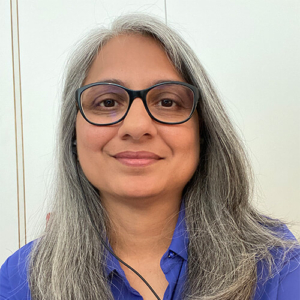
Neerja Chowdhary, MD (Psychiatry)
Technical Officer, Brain Health Unit, Department of Mental Health and Substance Use, WHO Geneva
A psychiatrist by training, Dr. Chowdhary is part of WHO’s brain health team supporting implementation of WHO’s Mental Health Action Plan 2012-2030 and the Intersectoral Global Action Plan on Epilepsy and Other Neurological Disorders 2022-2031. Part of her role includes leading the work on WHO’s mhGAP programme aimed at building the capacity of nonspecialist health workers to provide quality mental health care. She works with regional and country counterparts to support integration of mental health into primary care as well as other technical areas such as noncommunicable diseases, communicable diseases such as HIV and TB, neglected tropical diseases and maternal and child health.
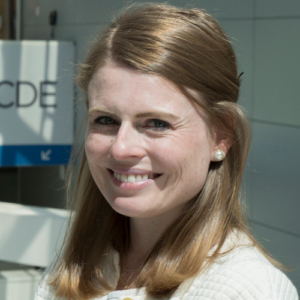
Katherine de Bienassis, MPH
Health Policy Analyst, Organisation for Economic Co-operation and Development (OECD)
Katherine de Bienassis is a Health Policy Analyst at the OECD, working on topics related to health care quality and outcomes, including patient safety, and specifically work on the economics of patient safety and patient safety culture. Prior to joining the OECD, Kate worked as a Senior Project Manager at the National Quality Forum (a U.S. based NGO), where her work focused on the evaluation and endorsement of healthcare quality and outcome measures for use in hospital settings, readmissions, cancer care, pediatrics, and cost and efficiency. Kate previously held positions at the Patient-Centered Outcomes Research Institute (a U.S. based research funding organization) and the Center for Global Development’s Global Health Team (a Washington, D.C. based think tank). Kate holds her MPH from Dartmouth College.
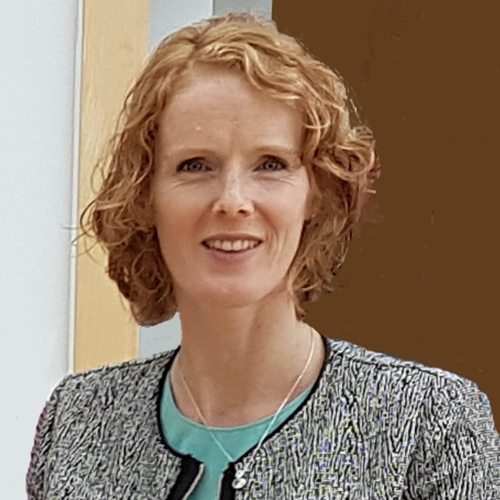
Dr. Marlieke Elizabeth Adriana de Kraker
Senior Epidemiologist, Infection Control Program, Geneva University Hospitals and Faculty of Medicine, Geneva, Switzerland
With a MSc in Epidemiology (2004), Marlieke de Kraker started her career at the Netherlands’ Institute for Public Health (2004-2012), working for the European Antimicrobial Resistance Surveillance System, and achieving her PhD degree (2007-2012: Burden of disease associated with antimicrobial resistance). From 2015 onwards, she has worked for the Infection Control Program (Prof Stephan Harbarth) and the WHO Collaborating Centre on patient safety and AMR, contributing to international projects on more efficient clinical trials for antibacterial drug development (COMBACTE, ECRAID), burden of AMR (MBIRA, BALANCE), and the potential impact of vaccines (PrIMAVeRa). She was selected for the ESCMID/ASM Young Investigator Lecture (2018), and is frequently invited for expert meetings on burden of AMR (Wellcome Trust, Chatham House, and WHO).

Dr. Hervita Diatri, MD
Head of Community Psychiatry Division, Department of Psychiatry, Universitas Indonesia, Indonesia
She is the Head of Quality and Patient Safety Committee at the Cipto Mangunkusumo Hospital and Member of Patient Safety National Committee, Ministry of Health, Indonesia
EDUCATION
2000 Medical Doctor, Faculty of Medicine, Universitas Indonesia (FMUI), Jakarta
2006 Psychiatrist, Faculty of Medicine, Universitas Indonesia, Jakarta
2018 PhD Graduate, Faculty of Medicine, Universitas Indonesia
ORGANIZATION EXPERIENCES
2014-2022 Head of Community Psychiatry Section, Indonesian Psychiatric Association
2013-2019 Head of Indonesian Early Career Psychiatrist, Indonesian Psychiatric Association
2009-2019 Secretary of Indonesian Psychiatric College
Dr. Hervita Diatri has received numerous awards (eg. she was awarded as fellow and honorary faculty of Australian Leadership Awards Fellowship) and is author and co-author of many publications (especially in the subject of mental health).
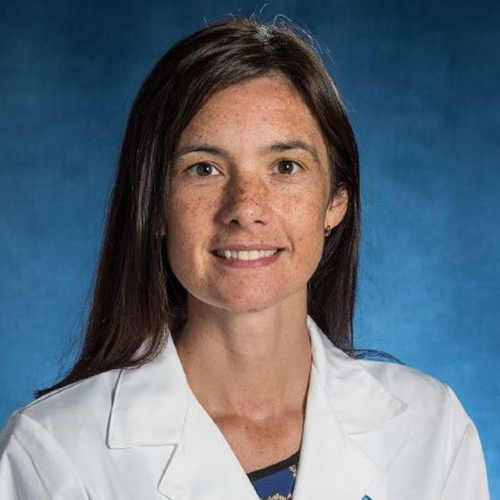
Maria Valeria Fabre, MD
Associate Director Antimicrobial Stewardship Program, Associate Hospital Epidemiologist, The Johns Hopkins Hospital
Dr. Fabre graduated with honors from the University of Buenos Aires School of Medicine, Argentina in 2004. She trained in internal medicine at Brown University and in infectious diseases at Johns Hopkins University where she is now an associate professor in the division of infectious diseases. Dr. Fabre serves as the associate program director of the Antibiotic Stewardship porgram and an associate hosptial epidemiologist at The Johns Hopkins Hospital. Her research focuses on antimicrobial and diagnostic stewardship in healthcare. Dr. Fabre received the Research Scholar Award from the Society for Healthcare Epidemiology of America (SHEA) for her project on blood culture stewardship. She has led several Centers for Disease and Prevention (CDC)-funded projects related to antibiotic stewardship and infection prevention in the United States and internationally.
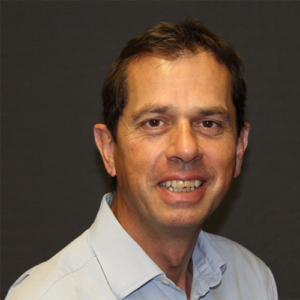
Aidan Fowler
National Director of Patient Safety in England, Department of Health and Social Care, UK
Aidan Fowler is the National Director of Patient Safety in England and a DCMO at DHSC. He was previously the Director of NHS Quality Improvement and Patient Safety and Director of the 1000 Lives Improvement Service for NHS Wales. He had responsibility for QI/PS across the Welsh NHS and was a board member of Public Health Wales.
Aidan was a Consultant Colorectal Surgeon in Gloucestershire for ten years and Chief of Service for Surgery for four before entering the NHS Leadership Academy Fast Track Executive Training Programme during which he worked as an executive at University Hospitals Bristol and subsequently worked briefly as a Medical Director in Mental Health and Community care in Worcestershire. Aidan trained as an Improvement Adviser(IA) with the IHI in Boston and was IA to the South West Safer Patient Programme and has worked on Patient Safety with WEAHSN. He has also worked as faculty with the IHI in the peri-operative safety domain in Qatar, infection reduction in Portugal and teaching improvement and safety in the UK and internationally. Aidan’s surgical training was in the South West but he graduated in medicine from University College London.
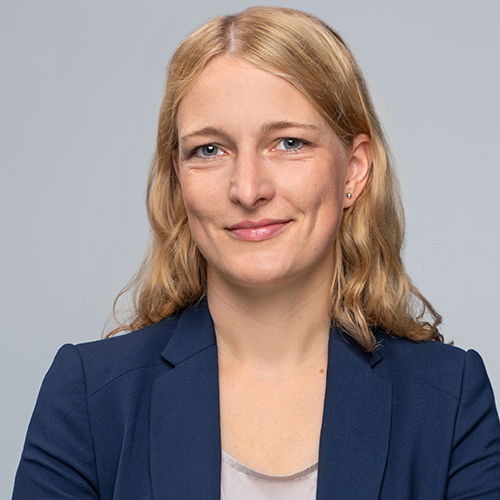
Dr. sc. ETH, Annemarie Fridrich
CEO, Swiss Patient Safety Foundation
Annemarie Fridrich joined the Swiss Patient Safety Foundation as a senior researcher in 2019 and took over the executive management of the Foundation in August 2022. In her work in the field of patient safety, she can draw on her background as a doctor of psychology and her experience in various projects in the healthcare sector, ranging from the optimization of clinical processes to clinical research.
In recent years, she has been particularly involved in evaluating compliance with the surgical safety checklist. In addition, she is interested in findings from implementation science – taking into account new conceptual findings from implementation research and trying to advance the development of concrete indicators to measure implementation success.
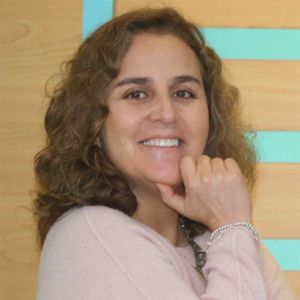
Dr. Patty J. García
Professor at the School of Public Health at Cayetano Heredia University (UPCH), Lima and member of the US National Academy of Medicine.
She is the former Minister of Health of Peru, former Dean of the School of Public Health at UPCH, and former Chief of the Peruvian National Institute of Health (INS). She is recognized as a leader in Global Health. She is affiliate Professor of the Department of Global Health, at University of Washington and of the School of Public Health at Tulane University. She has been a member of the Lancet Commission for the Education of health professionals for the 21st century; member of the Lancet Commission on Diagnostics: No treatment without accurate diagnosis and she is chairing a new Lancet Commission on “Cancer and Health Systems”. She is actively involved in research and training in Global health, Implementation research, quality in health services, Reproductive health, STI/HIV, HPV, diagnostics, and medical informatics. Dr. Garcia has been a member of the advisory board of CEPI (Coalition for Epidemic Preparedness Innovations). During the pandemic she has been leading clinical trials in Peru as SOLIDARITY, Convalescent plasma and ivermectin use, and has been chairing the advising governmental committee on innovations to fight the pandemic. She participates in several global advisory boards. Dr. Garcia is the Chair of the Strategic and Technical Advisory Group on Disease Elimination (STAG-D) from the Pan American Health Organization (PAHO), Member of the Strategic and Technical Advisory Committee on HIV, viral hepatitis and sexually transmitted infections (STAC-HHS)-WHO, and Member of the WHO Strategic Advisory Group of Experts on In vitro Diagnostics from WHO (SAGE IVD). Going forward, Dr. Garcia is interested in continuing with research in the areas of her core interests, promoting community participation in research, equity and involving the most vulnerable populations. She is interested in continuing working in moving research into policy in Peru and Latin America and sharing lessons learned beyond the Latin American region.
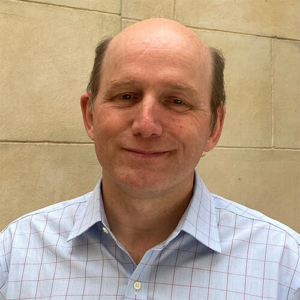
Ezequiel Garcia-Elorrio MD MSc MBA PhD
Founder board member of the Institute for Clinical Effectiveness and Health Policy in Argentina, where he also leads the Department of Health Care Quality and Patient Safety.
Dr. García-Elorrio practices medicine as general internist and is currently Professor of Public Health at CEMIC and holds a lecturer position at the University of Buenos Aires.
Has worked extensively in Quality of Care and Patient Safety research, education and implementation projects in Latin America. Sub-Saharan Africa and Southeast Asia funded by NIH, USAID, PATH, URC, IADB, WB, WHO and the B&M Gates Foundation among others. He is currently part of the board of ISQua and president elect for the 2023-2026 term. He is an active collaborator of the IHI as faculty and facilitator in the LAC region. Recently he was part of the Lancet commission on Quality in Developing Countries -HQSS- that contributed with a renovated vision of the field of Improvement and measurement as well to the launch of the QuEST Network to boost research and implementation in the field of Quality of Care.
From 2023 he will be of the PIs of the The Global Health Network for Latin-america, an initiative from Oxford University funded by the Wellcome Trust.

Dr. Chris Gordon
Director of Improvement and Transformation, Barts Health NHS Trust, London, UK
Chris is the Director of Improvement and Transformation at Barts Health, one of the largest Group Hospital Trusts in the UK NHS. He is responsible for developing a culture and practice of continuous Improvement, engaging all staff and embedding it as the approach to address our most urgent health priorities. During the Pandemic he was also Chair of the Trust Infection Control Committee and Medical Director of a National Vaccination centre. He has held positions of Medical Director, Chief Operating Officer and CEO, of NHS Acute and Mental Health Trusts. He continues to practice as a Physician specialising in Movement Disorders. He teaches and writes on Quality and Improvement. “
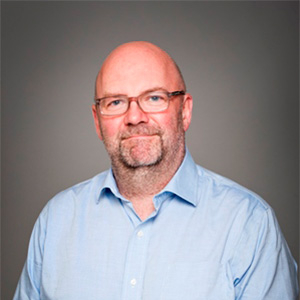
Dr. Jeremy Grimshaw MBChB, PHD, FCAHS, FRSC, Corr FRSE
Senior Scientist, Hospital Research Institute and University of Ottawa, Canada
Prof. Jeremy Grimshaw is an internationally recognized implementation scientist. His research focuses on the evaluation of interventions to improve patient care and safety. He is is a Senior Scientist, Clinical Epidemiology Program, Ottawa Hospital Research Institute, a Full Professor in the Department of Medicine, University of Ottawa and a Tier 1 Canada Research Chair in Health Knowledge Transfer and Uptake.He is a Fellow of the Royal Society of Canada, the Canadian Academy of Health Sciences and a Corresponding Fellow of the Royal Society of Edinburgh. He has been awarded the CIHR Knowledge Translation award twice and was the 2018 CIHR Barer-Flood career achievement award for Health Services and Policy Research.
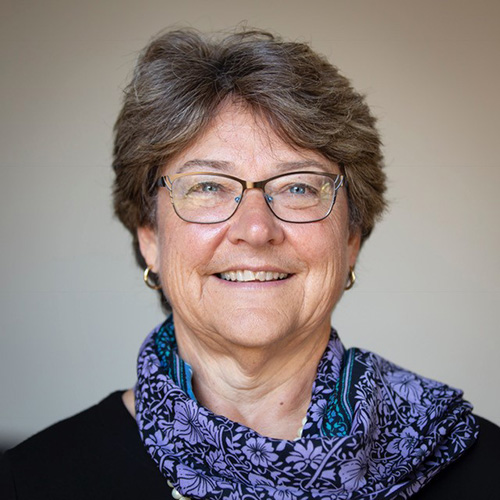
Carol Haraden, PhD
Senior Fellow, Institute for Healthcare Improvement IHI, Cambridge
Dr. Haraden is a Senior Fellow at the IHI where she has served as Vice President for 19 years. She was a member of the team responsible for developing innovative designs in patient care. She helped lead the IHI portfolio of patient safety programs worldwide with large scale improvement programs in Scotland, Denmark, Singapore and Qatar. Dr. Haraden has published several papers on measuring patient harm, improving intensive care outcomes and innovation in health care design. She recently served on the Berwick Commission, the National Advisory Group on Improving Patient Safety in the English NHS.
She has served on the Institute of Medicine Committee, Engineering Approaches to Improve Health Care. She has been a judge for several national quality awards including the Quest for Quality Award sponsored by the AHA and the John Eisenberg Award for Patient Safety and Quality sponsored by the JCAHO. She has served on AHRQ study sections. She has been an associate editor for the BMJ journal, Quality and Safety in Health Care. She is a board member of the University of Vermont Health System and serves on the Quality Committee.
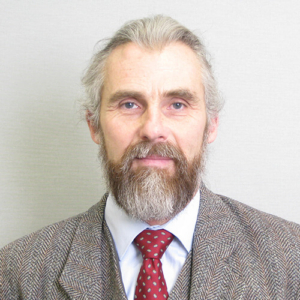
Dr. Ingo Härtel
Deputy Head Molecular Medicine & Bioethics, Federal Ministry of Health, Berlin, Germany
Dr. Ingo Härtel holds a doctorate in medicine from the Charité, Berlin and an MA in bioethics from the Kennedy Institute of Ethics, Georgetown University, Washington, DC. His current position is that of Deputy Head of the Division for ‘Health Law, Patients’ Rights, Patient Safety’ at the German Federal Ministry of Health. Previously, he worked for the office of the Enquete Commission “Law and Ethics in Modern Medicine” at the German Bundestag.
He is the Joint Chair of the Steering Committee for the Global Ministerial Summits on Patient Safety and represents Germany in the Intergovernmental Bioethics Committee (IGBC) of UNESCO and in the Steering Committee for Human Rights in the fields of Biomedicine and Health (CDBIO) at the Council of Europe where he serves as Rapporteur on Genomics and Genetics.
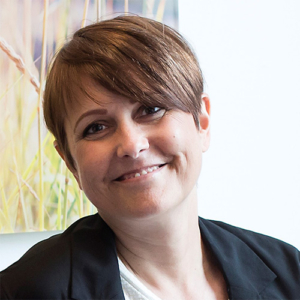
Vibeke Hellesund
Peer Support Specialist (FACT, flexible assertive community treatment), Kronstad district psychiatric center at Haukeland University Hospital, Bergen, Norway.
Vibeke Hellesund is a certified peer support specialist. She currently works in a FACT team (Flexible assertive community treatment team) at Kronstad District Psychiatric center.
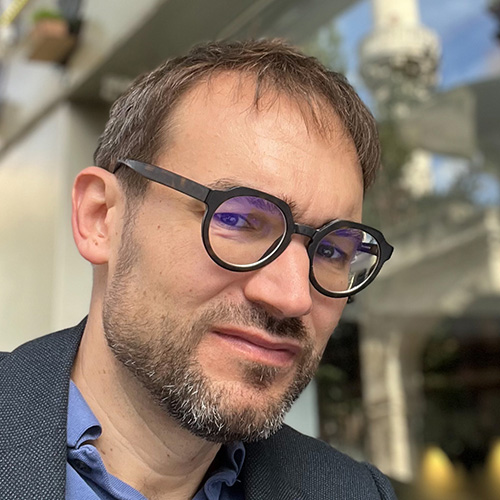
Dr. Benedikt Huttner
Team Lead Essential Medicines, WHO, Geneva
Benedikt Huttner is the Secretary of the Expert Committee on the Selection and Use of Essential Medicines and team lead Essential Medicines at the World Health Organization, a position he holds since March 2021. Benedikt obtained his medical degree in Munich, Germany in 2001 and then moved to Switzerland. After training in internal medicine in Bellinzona (2002-2004) he specialized in infectious diseases in Zurich (2004-2006). Between 2006 and 2021 he has been working at Geneva University Hospitals, first in the Infection Control Department and then in the Division of Infectious Diseases (since 2014) as attending physician. His research focused on antimicrobial resistance, antimicrobial stewardship and appropriate use of medicines in general. Between 2010 and 2012, he completed a research fellowship in Salt Lake City where he obtained a master’s degree in clinical research. Before joining WHO as staff member he had been working as part-time consultant with the EML team since 2017.
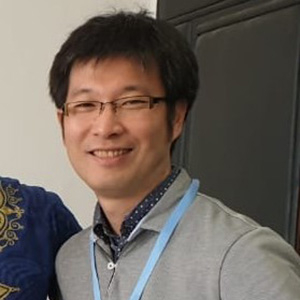
Dr. Kazuaki Jindai, MD, Dr.PH, FACP
Assistant professor, Department of Virology, Tohoku University, Japan
Kazu is a physician with expertise in infectious diseases and public health with operational and research experiences in domestic and global settings. Clinically trained and practiced in the US and Japan. Has worked for the WHO and Japanese Ministry of Health. During the early days of COVID-19 pandemic, Kazu was an expert member of the national COVID-19 cluster taskforce and supported the government’s response. He is currently commissioned by the Ministry of Health to conduct a research across Japan, US, and UK on national pandemic clinical trial schemes. He is also part of the taskforce in developing G7 health ministry meeting agenda for 2023. His research interests include infectious diseases and health system.
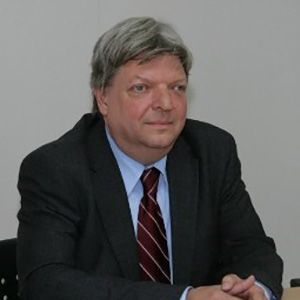
Prof. Niek Klazinga
Professor of Social Medicine, Amsterdam University Medical Centre / University of Amsterdam
Niek Klazinga, MD, PhD is since 1999 Professor of Social Medicine at the University Medical Center/ University of Amsterdam. Since 2006 till his retirement in September 2022 he has also been the strategic lead of the Health Care Quality and Outcomes program at the OECD in Paris. Dr. Klazinga has been involved over the past 30 years in numerous health services research projects and policy debates on quality and safety of care and published widely on the subject. Previous positions include medical director of the Municipal Public Health Office of the city of Amsterdam, and member of the board of trustees of a teaching hospital (Isala Clinics) and mental health care institute (Arkin). Present commitments include advisor to WHO, advisor to the Canadian Institute for Health Informatics and member of the Quality Council of the Dutch Health Care Institute (ZiN). Dr. Klazinga received honorary doctorate degrees from Corvinus University Budapest (2012) and Carol Davila University of Medicine and Pharmacy Bucharest (2022) has (co)authored around 280 articles in peer-reviewed journals and to date completed the supervision of 42 PhD trajectories.
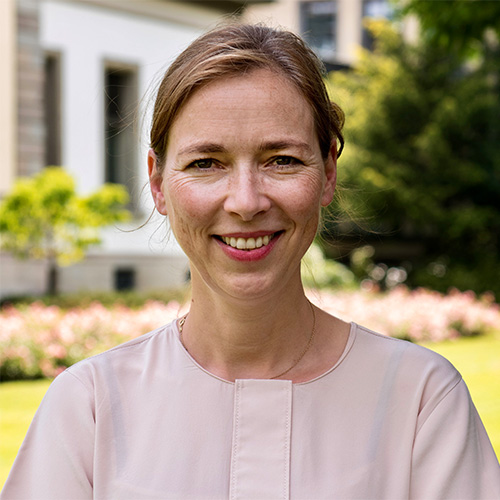
PD Dr. rer.nat. Michaela Kolbe
Director of Simulation Centre, University Hospital Zurich, CH
Michaela Kolbe is the director of the Simulation Center of the University Hospital Zurich, Switzerland. She has been leading team research projects investigating interactions in acute settings and debriefings in healthcare for many years. Her particular research interest includes debriefing, psychological safety and the social dynamics of “speaking up” across the authority gradient and across disciplines in healthcare. Michaela Kolbe’s Ph.D. is in psychology and she is a faculty member of at ETH Zurich. She has published widely in psychological, healthcare, and simulation journals and books, represents simulation-based and organizational research in various committees and is Associate Editor of Advances in Simulation and Frontiers in Psychology.
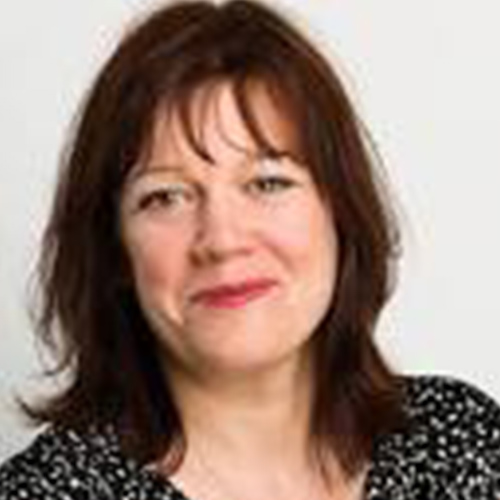
Prof. Rebecca Lawton
Director, Yorkshire Quality and Safety Research Group, University of Leeds
After being awarded her doctorate from University of Manchester, Rebecca took up a position at the University of Leeds in 1999, becoming Professor in 2012. Rebecca’s 28 year-long career in patient safety research, has focused on professional behaviour change, designing work, environments and technology for safety and involving patients in patient safety. Rebecca now leads a research group of 45 researchers and PhD students whose mission is to deliver research that makes healthcare safer and is Director of one of only three Patient Safety Translational Research Centres in England, funded by the National Institute for Health Research. The solutions developed by the group have had a significant impact on patient safety policy, practice and education in the UK and internationally.
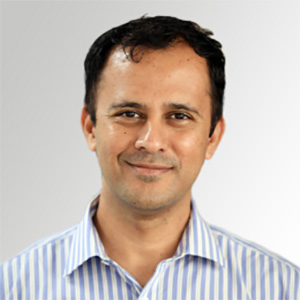
Ramanan Laxminarayan
President and Founder, One Health Trust, Center for Disease Dynamics, Economics & Policy (CDDEP), USA
Dr. Laxminarayan is a senior research scholar at Princeton University. He is an affiliate professor at the University of Washington, senior associate at the Johns Hopkins Bloomberg School of Public Health, and a visiting professor at the University of Strathclyde in Scotland. Dr. Laxminarayan chairs the board of GARD-P, a global product development partnership created by the World Health Organization, that aims to develop and deliver new treatments for bacterial infections. He is founder and board chair at HealthCubed, which works to improve access to healthcare and diagnostics worldwide.
Since 1995, Dr. Laxminarayan has worked to improve the understanding of antibiotic resistance as a problem of managing a shared global resource. His work encompasses extensive peer-reviewed research, public outreach, and direct engagement across Asia and Africa through the Global Antibiotic Resistance Partnership. Through his prolific research, active public outreach (including a TED talk that has been viewed over a million times), and sustained policy engagement, he has played a central role in bringing the issue of drug resistance to the attention of leaders and policymakers worldwide and to the United Nations General Assembly in September 2016.
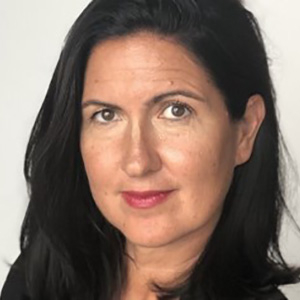
Helena Legido-Quigley
Associate Professor at the Saw Swee Hock School of Public Health and has a joint position with the London School of Hygiene and Tropical Medicine.
Helena Legido-Quigley is also an Adjunct Professor at the University of Oslo.
She serves as an associate fellow of Chatham House and she is editor-in-chief of Elsevier’s Journal of Migration and Health.
She has conducted research on health policy and health systems in Europe, Latin America, Sub-Saharan Africa and currently with a focus on Southeast Asia. Specific areas of expertise include global health, health system’s resilience and migrant populations. Her latest research focuses on the impact COVID-19 on health systems and more widely on the future of the global health architecture.
She has published over 150 peer-reviewed publications in journals such as the Lancet, British Medical Journal, Nature Medicine, and PLOS Medicine. Her work has also been widely covered in International media including The Times, The New York Times, the Washington Post, The Economist, the Financial Times and the Huffington Post among other.
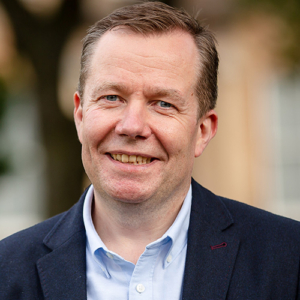
Prof. Jason Leitch
National Clinical Director, Scottish Government
Prof. Leitch qualified as a dentist in 1991 and was a Consultant Oral Surgeon in Glasgow. He has a doctorate from the University of Glasgow, a MPH from Harvard and is a fellow of the three UK surgical Royal Colleges. In January 2015 was appointed as The National Clinical Director. He was appointed CBE in the 2019 Queen’s Birthday Honours. He is a Senior Fellow at the Institute for Healthcare Improvement (IHI). In 2020 and 2021 he was awarded the Fletcher of Saltoun award from the Saltire Society, elected to the US National Academy of Medicine and awarded an Honorary Membership of the Faculty of Public Health for his contribution to the UK and Scottish response to the global pandemic.
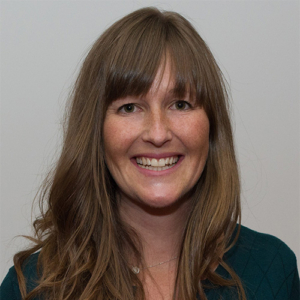
Cara C. Lewis, PhD
Senior Investigator, Kaiser Permanente Washington Health Research Institute
2011 PhD, University of Oregon
2017-2019 Past President, Society for Implementation Research Collaboration
2020-present Co-Director, Kaiser Permanente’s Social Needs Network for Evaluation and Translation
2019-present Co-Director, Optimizing Implementation in Cancer Control Center
2021-present Co-Director, The IMPACT Center
2020-present Co-Founding Editor-in-Chief, Implementation Research and Practice
2022 Clarviate World’s Most Highly Cited Researcher
2017-2022 Kaiser Permanente Washington Health Research Institute Mentor Award Nominee
2016 Kaiser Permanente Washington Health Research Institute Award for Most Published Associate Investigator
2016 Association for Behavioral and Cognitive Therapies President’s New Researcher Award
2016 Theodore Blau Early Career Award for Distinguished Professional Contributions to Clinical Psychology; Society of Clinical Psychology, American Psychological Association
2015 Rising Star in the Association of Psychological Science

Dr. Piyawan Limpanyalert MD
Chief Executive Officer, The Healthcare Accreditation Institute, Thailand
Dr. Piyawan Limpanyalert MD, Chief Executive Officer of the Thailand Healthcare Accreditation Institute. She was an obstetric and gynecologist doctor more than 10 years in the community hospital to general and university hospital, that made she has found the opportunity for safety and quality improvement in the healthcare system. She has vast and extensive experiences in hospital management, hospital accreditation, quality improvement and patient safety for more than 15 years. She is also an expert in development and support the hospital to continue development by using the concept of quality development and patient safety to integrate with hospital standards and hospital accreditation, and organizing/establishing platform for sharing and learning for healthcare system to identify good practices by facilitating experts and practitioner stakeholders to share knowledge and experiences such as communities of practice and the annual conference of the HA National Forum. In collaboration with WHO, in 2015 she has developed an umbrella program on Engagement for Patient Safety. Through these programs, key stakeholders including patients and families are engaged as active partners in a nation-wide movement to improve patient safety. Now she works as leader, coordinator and expert, who is a patient and personnel safety policy driver in Thailand and works with WHO as global patient safety network.

Associate Prof. of Pediatrics Surgery Tihitena Negussie Mammo
Global Clinical Director, Lifebox Foundation and Addis Ababa University
EDUCATION:
MD Addis Ababa University in 2006
Speciality and Subspeciality Certificate in General surgery and Pediatrics surgery respectively in Jan. 2011 and Dec. 2013
Long term and shortterm trainings around research, leadership and medical education
PAST AND CURRENT EMPLOYERS
Addis Ababa University
Lifebox Foundation
Prof. Tihitena Negussie Mammo has received different grants on research as well as fellowships and is author and co-author of many publications.
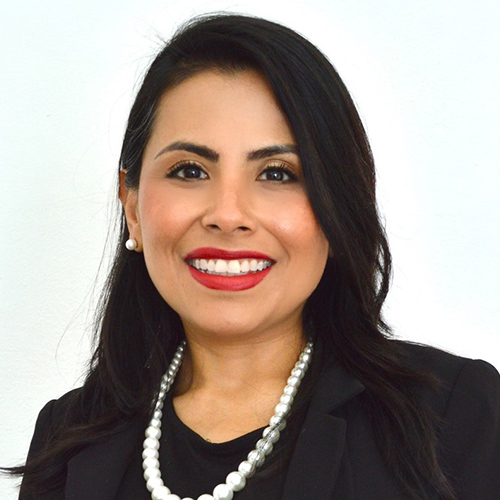
Prof. Hilda Márquez Villarreal
Coordinator of the Master’s Degree in Quality Management and Patient Safety, Universidad de Guadalajara
She graduated as a MD and Master in Public Health from the National Institute of Public Health. Coordinated research and teaching Patient Safety at national level and participated as an evaluator in health programs. Serving as Ministry of Health Quality program coordinator (Jalisco). Adviser and lecturer at national and international levels. She has participated as WHO consultant on health quality, patient safety and infection control. She is an instructor for the WHO Multimodal Hand Hygiene Improvement Strategy. Working as a professor, researcher and coordinator of the Master’s Degree in Quality and Patient Safety, University of Guadalajara. She participated in developing quality/patient safety documents and policies. She is founder and president of the Mexican Association for Quality and Patient Safety-AMEXCASEP.

Prof. Marc Mendelson
Professor of Infectious Diseases and the Head of Division of Infectious Diseases and HIV Medicine at Groote Schuur Hospital, University of Cape Town.
Marc Mendelson is Professor of Infectious Diseases and the Head of Division of Infectious Diseases and HIV Medicine at Groote Schuur Hospital, University of Cape Town. His work spans clinical, research, and policy to mitigate antimicrobial resistance. He is the co-founder of the South African Antibiotic Stewardship Programme and has chaired the South African Ministerial Advisory Committee on AMR since its inception in 2014, leading the formation of South Africa’s National Action Plan. He provides technical assistance on AMR to the WHO, World Economic Forum, the Global Health Security Agenda, The Wellcome Trust, and the Global Antibiotic Research and Development Partnership. During COVID-19, he chaired the clinical section of the Ministerial Advisory Committee on COVID-19. He has held the presidencies of the Federation of Infectious Diseases Societies of Southern Africa and the International Society for Infectious Diseases.
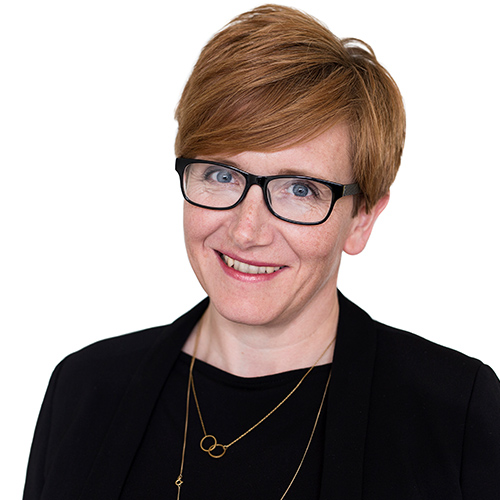
Dr. Randi-Luise Moegster, MD,Specialist in psychiatry
Deputy CEO, Haukeland University Hospital, Bergen, Norway
Randi-Luise Møgster is a physician, specialist in adult psychiatry and former director at Kronstad district psychiatric hospital, in the Division of Mental Health Services at Haukeland University Hospital. She is now deputy CEO at Haukeland University Hospital in Bergen. In her role, she has particular responsibility for addressing peer support and collaboration with patients and caregivers at the hospital. She has worked with interaction and patient care for several years in her previous roles in the Division of Mental Health Services. She has been involved in the development and implementation of mental health care package programs in Norway. She also has responsibility for collaboration with the 18 municipalities in the admission area, and she is a member of all four collaboration committees with the municipalities established in Haukeland University hospitals area of admission. Randi-Luise has led the Pandemic Coordination Group between the municipalities and the hospitals that, throughout the pandemic, has jointly solved challenges and coordinated resources across hospitals and municipalities. She was a member of the government-appointed expert group that was set to evaluate; “Quality of life, mental health and drug use during the Covid-19 pandemic in Norway”. One of her special area of interest is patient management across the different management levels in the health care services.
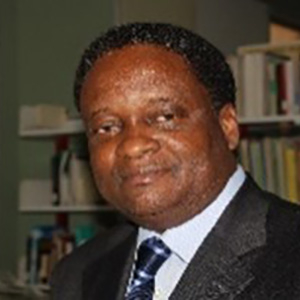
Pierre M’Pele MD, MPH, PhD
Epidemiologist, Mercy Ships Regional Director for Africa
Post doctorate degrees from the University of Paris in Epidemiology, Infectious diseases and Tropical Medicine, Nutrition and Public Health.
Associate Professor of Public Health. Elected in April 2021, Foreign correspondent member of the National Academy of Medicine, France. Scientific director of the baseline Assessment on Surgical, Obstetric and Anesthesia Care in 32 sub-Saharan African countries (601 district-hospitals) and main facilitator of the Dakar Declaration on access to equitable, affordable and quality Surgical, Obstetric and Anesthesia Care by 2030 in Africa 2022.
Former Country Representative of the World Health Organization (WHO) in Equatorial Guinea, Togo, Benin, Ethiopia.
Honorary President of the Society for AIDS in Africa. Former UNAIDS Regional Director for West and Central Africa.
Author and co-author of numerous books, more than 140 scholarly and scientific articles and communications.
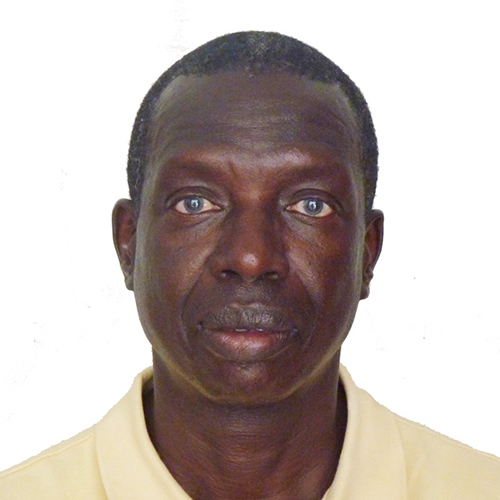
Prof. Babacar Ndoye
IPC Expert, WHO Consultant, WHO Afro
Prof. Ndoye is a physician, Associate Professor in Microbiology. He graduated in microbiology at the Pasteur Institute of Paris, then in army hospitals in France, and Pharo Institute in Marseille. He has then graduated in Epidemiology at the Swiss Tropical Institute in Basel and also completed an Audit Expertise course in Hospital Hygiene at the Pasteur Institute in Lille, France.
For nearly 10 years, he directed Senegal’s national program for the control of HAIs. (PRONALIN, which was one of the first programs of the day set up in sub-Saharan Africa).
Since his retirement, he has worked as a consultant, mainly at the WHO level (headquarter and AFRO office), for whom he has carried out numerous expert missions, particularly in Africa. He has led the development of national AMR plans in countries like Guinea, Niger and the governance component in Cameroon.
During the Covid-19 pandemic, he worked as an IPC Consultant to support the WHO Afro regional office.
Prof NDOYE received the distinction of Commander of the Order of the Lion in Senegal.
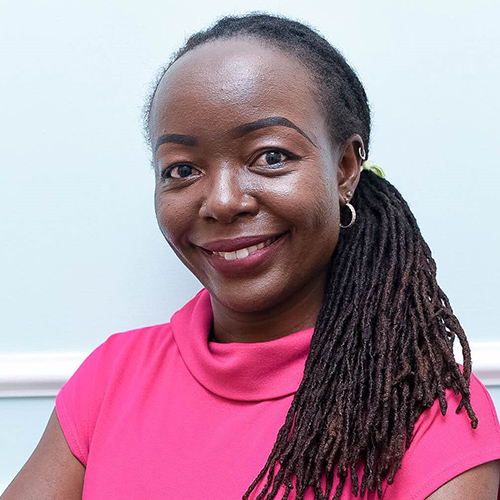
Jacquie Oliwa
Science Researcher in Health Systems and Implementation, Paediatrics & Child Health at KEMRI-Wellcome Trust Research Programme and the University of Nairobi
Education
PhD (2020), University of Amsterdam
MSc Epidemiology (2014), London School of Hygiene & Tropical Medicine
MMed Paediatrics (2011), University of Nairobi
MBChB (2005), University of Nairobi
Employment
Post-doctorate Researcher, KEMRI-Wellcome Trust Research Programme
October 2020 to date
PhD Research Fellow, KEMRI-Wellcome Trust Research Programme
September 2016-September 2020
Research Medical Specialist, KEMRI-Wellcome Trust Research Programme
April 2011-August 2016
Lecturer, Department of Paediatrics & Child Health, University of Nairobi
February 2016 to date
Jacquie Oliwa received numerous grants and awards.
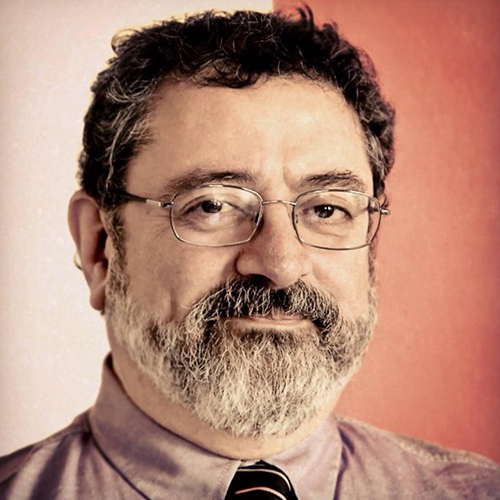
Fernando Otaiza
MSc in Epidemiology, Advisor to the Ministry of Health of Chile and the Panamerican Health Organization
Dr. Fernando Otaiza a medical doctor, graduated from Universidad de Chile’s medical school in 1980 and a MSc in Epidemiology from the LSHTM in 1997. He was appointed in charge of the National Infection Prevention and Control Program (1983-2020), with the responsibilities of establishing a surveillance system infections; a strategy for training health care workers in IPC; development of guidelines and regulations for IPC; a national standard for IPC’s core components and an external evaluation system for the standard. All of these are current ongoing regular activities in the health system of Chile. He worked in WHO’s IPC program 2008-2009, member of WHO’s emergency committees for influenza and Ebola, member in the Strategic Technical Advisory Group on Antimicrobial Resistance 2011-2020
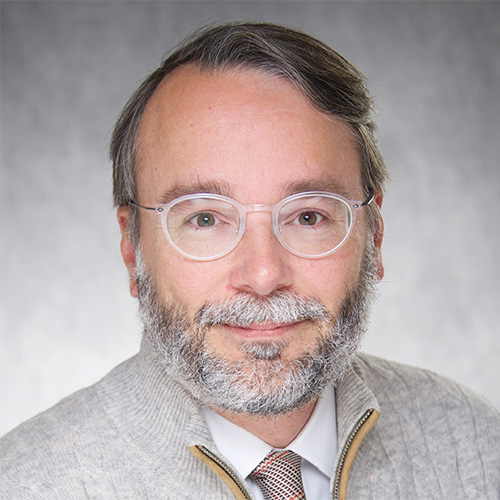
Prof. Eli Perencevich
Associate Chair for Clinical and Health Services Research, Department of Internal Medicine, University of Iowa Carver College of Medicine

Linda Pollock
Director, Healthcare Quality and Improvement, Scottish Government
Linda Pollock has been interim Director of the Healthcare Quality and Improvement Directorate in the Scottish Government since October 2020. Linda is passionate about improving services for the people of Scotland; and in this role promoting safe, person centred care.
Linda joined the Scottish Government in 2005 on the Civil Service Faststream Programme and has worked in numerous roles across government. Before taking up the role, Linda had been the Deputy Director for Healthcare Quality and Planning and, prior to this, was the Deputy Director for Community Justice.
She was born in Glasgow and studied at Strathclyde University, before moving to Edinburgh where she lives with her husband and two young sons. Linda is also a champion for the Graduate Development Programme and the Women’s Development Network within the Scottish Government.
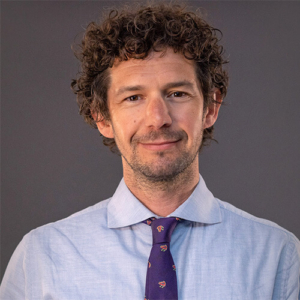
Dr. Jonathan Purtle
Associate Professor, Department of Public Health Policy & Management, Director of Policy Research, Global Center for Implementation Science, New York University School of Global Public Health
Dr. Purtle is an implementation scientist whose research focuses on mental health policy. His work examines questions such as how research evidence can be most effectively communicated to policymakers and is used in policymaking processes, how social and political contexts affect policymaking and policy implementation, and how the implementation of policies “on the books” can be improved in practice. He is also interested in population-based approaches to mental health and how mental health can be integrated in to mainstream public health practice. Dr. Purtle’s work has been consistently funded by the National Institute of Mental Health (NIMH) and Robert Wood Johnson Foundation (RWJF).
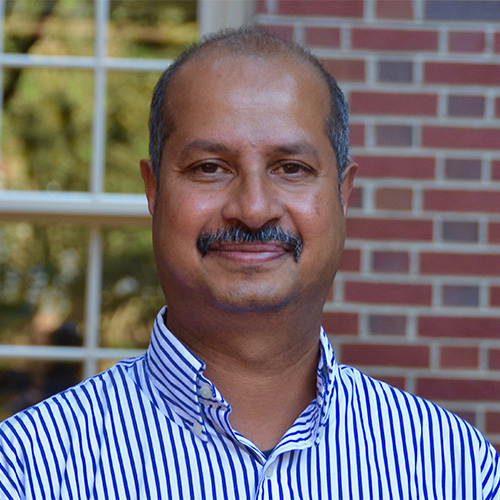
Dr. Rohit Ramaswamy
Professor of Pediatrics and co-director of research at the James M. Anderson Center for Health Systems Excellence.
Prior to joining Cincinnati Children’s, he was the Associate Director of the Public Health Leadership Program and a Professor in Maternal and Child Health at the Gillings School of Global Public Health at the University of North Carolina at Chapel Hill.
Dr. Ramaswamy’s area of expertise is in Implementation and Improvement science, which deals with the development and evaluation of systematic methods and tools to sustainably implement and improve complex interventions. His work blends the tools of systems science, design thinking, implementation science and continuous quality improvement to build capacity for implementation. His global projects include the improvement of clinical and operational processes in tertiary maternity hospitals in Ghana, integrating mental health service delivery into the district primary health care system in India. His has developed and taught Implementation Science programs in South Africa and in Zambia. In the US, he has led the development of innovative methods to evaluate complex community transformation initiatives. Dr. Ramaswamy has a Bachelor of Technology degree in Mechanical Engineering from the Indian Institute of Technology, MS and PhD degrees in Civil Engineering from the Massachusetts Institute of Technology, a MPH degree from the University of North Carolina at Chapel Hill and a Graduate Diploma in Biostatistics from the University of Sydney.

Prof. Rajesh Sagar
Professor of Psychiatry, All India Institute of Medical Sciences, Delhi
Received CCST from STA of Medical Royal Colleges (UK) and GMC, UK. Awarded Fellowship of National Academy of Medical Sciences and fellowship of International Medical Science Academy. Awarded Fellowship of Royal College of Physicians (Edinburgh, UK). Honorary Professor in department of Psychiatry, University of Melbourne, Australia & University of Leicester, UK. Chair, Mental health group of Global Burden of Disease-India.
Currently, he is member of the Central Mental Health Authority, Govt. of India, since 2005
Expert/advisory member for several organizations incl National Task forces of MoHFW. Published articles more than 700 research papers, chapters, books and more than 80k citations. Received several awards and honors including ICMR Award, Outstanding Researcher award as country’s Topmost researcher in psychology/mental health based on research output in SCOPUS.
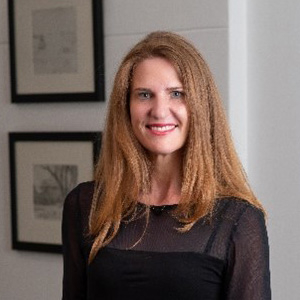
Prof. Natalie Schellack
Professor and Head of the Department of Pharmacology, University of Pretoria.
She holds three degrees, two bachelor degrees (nursing and pharmacy) and a PhD in Pharmacy. Outside the University, she serves on the South African Pharmacy Council (as an elected member of council) and the Ministerial Advisory Committee for Antimicrobial Resistance (MAC-AMR). Her research interests are centred on the broad area of clinical pharmacy as related to paediatrics, ototoxicity and infectious diseases (e.g., TB and HIV). More specifically interested in quantifying antimicrobial utilisation data, pharmacokinetic and dynamic levels of antibiotics in blood levels. More recently her research area has been more focused on finding innovative ways of measuring antimicrobial utilisation using health technology.
She is a cofounder of the South African Society of Clinical Pharmacy (SASOCP). In 2018 she has also been nominated as the woman of the year – health care category for “woman of stature” in South Africa. She is also a rated researcher (C2) as awarded by the National Research Foundation (NRF), furthermore she is the fourth elected member of the South African Antimicrobial Stewardship Programme (SAASP).
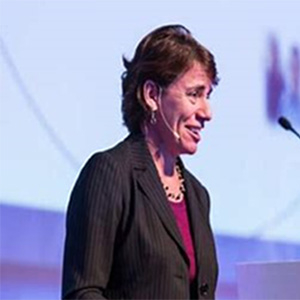
Lisa Schilling, RN, MPH, CPHQ
Co-Founder and CEO Insight Leadership Strategies and Chief Quality and Integration Officer, Contra Costa Health Services
With decades of experience as a health care and system leader, Lisa has led complex healthcare systems through a process of strategic planning, operational prioritization, design and implementation of interventions that lead to world-class outcomes.Lisa has been Stanford Healthcare’s vice president for quality, patient safety and clinical effectiveness. In this role she led operations for the quality, performance improvement and population health functions. During her tenure Stanford achieved both top 10 academic medical center in the US and USNWR top 10.
Formerly, Kaiser Permanente’s national vice president for quality, patient safety and care delivery effectiveness, she led the enterprise-wide strategy to develop and implement clinical and operational systems to accelerate learning and spread of best practices. Lisa led the development and implementation of the national performance improvement system and became an international expert on spread and scale-up of clincial interventions.
She has been recognized as one of Becker’s top 10 leaders in quality and the 2014 Juran Institute Executive Master Black Belt. An author on various topics, Lisa has been on the Joint Commission Journal editorial board and was the 2017 Institute for Healthcare Improvement National Forum co-chair.
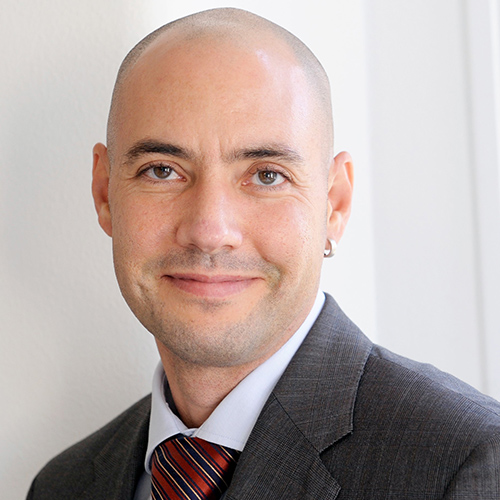
Prof. Dr. David Schwappach
Associate Professor Patient Safety, University of Bern, Switzerland
David Schwappach holds a PhD in health services research. After an academic career in Germany, David joined the Swiss Patient Safety Foundation as scientific director and director from 2008-2022. In 2022, he was appointed professor for patient safety at the Medical Faculty, University of Bern (Switzerland) where he engages in education and training of medical students and health care staff. His research is focused on healthcare harm reduction and innovation in high-risk environments, including health IT.
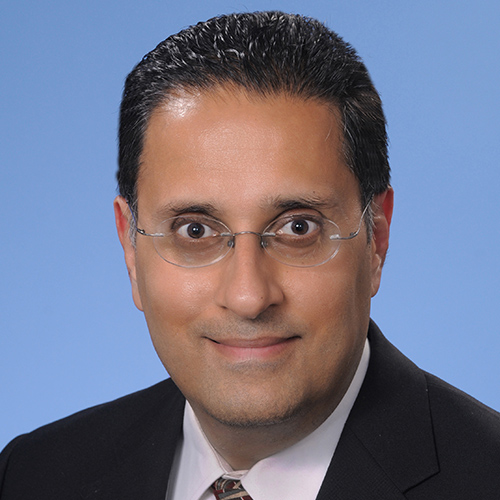
Prof. Hardeep Singh
Professor of Medicine, Co-Chief, Health Policy, Quality and Informatics Program, Center for Innovations in Quality, Effectiveness and Safety, Michael E. DeBakey VA Medical Center and Baylor College of Medicine, Houston, Texas
Prof. Hardeep Singh is a physician-scientist and leads a portfolio of multidisciplinary patient safety research related to measurement and reduction of diagnostic errors and improving the use of health information technology. His work has impacted national policies and clinical practice and also informed numerous patient safety initiatives and reports, including those by the OECD and WHO. He is an appointed member of US National Academies’ Board of Health Care Services and an elected Fellow of the International Academy of Health Sciences Informatics. He has received several awards for impacting safety, including the Presidential Early Career Award for Scientists and Engineers from President Obama in 2014 and the 2021 John M. Eisenberg Patient Safety and Quality Award for Individual Lifetime Achievement.
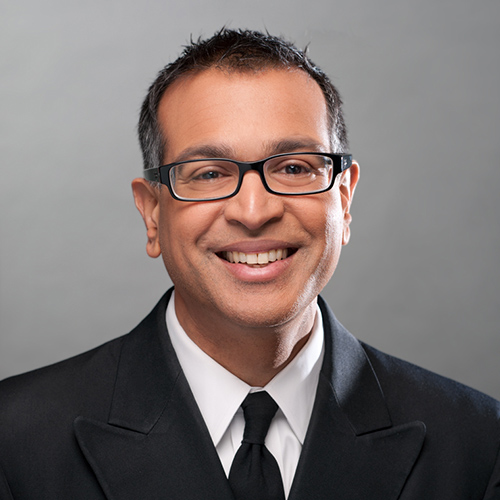
Dr. Arjun Srinivasan, MD
Deputy Director for Program Improvement, Division of Healthcare Quality Promotion, Centers for Disease Control and Prevention, US
Arjun Srinivasan received his MD degree from Vanderbilt University and did his Internal Medicine Residency and Infectious Diseases Fellowship at the Johns Hopkins Hospital. Before coming to CDC, he served as the deputy hospital epidemiologist at Johns Hopkins and was the founding director of the Antibiotic Stewardship Program. His primary responsibilities include oversight and coordination of efforts to eliminate healthcare associated infections and reduce antibiotic resistance. Dr. Srinivasan has published more than 100 articles in peer-reviewed journals on his research in healthcare epidemiology, infection control and antimicrobial use and resistance. He has received the Maxwell Finland award from the Infectious Diseases Society of America and the Investigator Award from the Society for Healthcare Epidemiology of America.
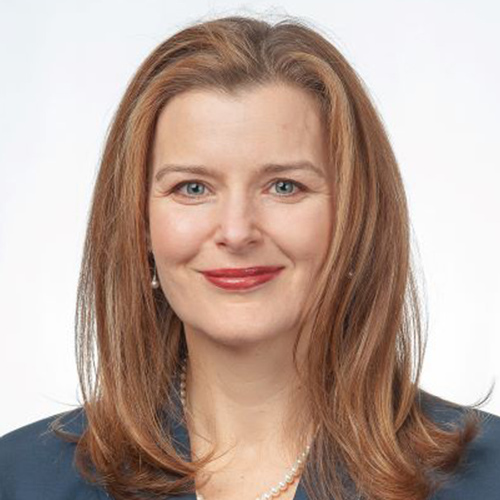
Dr. Katie Suda
Professor of Medicine and Pharmacy at the University of Pittsburgh Schools of Medicine and Pharmacy, Associate Director of the Center for Pharmaceutical Policy and Prescribing, and Director of the Transition to Independence Program.
Dr. Suda is an expert in outpatient prescribing and antibiotic stewardship. Dr. Suda received a Doctor of Pharmacy degree from Drake University and a Master’s in epidemiology at the University of Tennessee and completed post-doctoral training in infectious diseases at the University of Illinois at Chicago.
Dr. Suda has received funding from the Agency for Healthcare Research and Quality, CDC, FDA, NIH, and VA. Dr. Suda has served on committees and expert panels focused on antibiotic stewardship and evidenced-based care for federal agencies and professional organizations. Dr. Suda has written > 200 research articles and 15 book chapters. Dr. Suda has received awards for teaching and research, including the CDC Shepard Science Award and the SHEA Antimicrobial Stewardship Scholar Award.
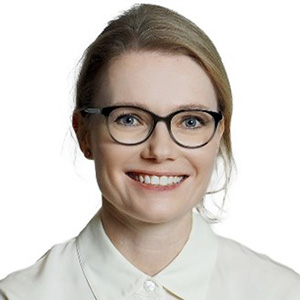
Prof., MD Sarah Tschudin Sutter
Head Division of Hospital Epidemiology and Deputy Head, Division of Infectious Diseases & Hospital Epidemiology, University Hospital Basel

Dr. Teresa Tono
CEO, Organización para la Excelencia de la Salud
Teresa Tono has had a lifelong commitment to the betterment of health care. As such, she has participated in healthcare quality improvement over the years and across the health care system. She is a medical doctor, in addition to an MPH and a PhD, with emphasis in health services, from UCLA.
She participated, in the development and implementation of Colombia´s health care system reform bill, (Ley 100) labeled as the “big bang approach to healthcare reform”. This role included the development of Colombia´s Healthcare Quality Assurance System, which was adopted by the government in 2002 and remains in place since then.
Currently, Teresa is CEO of Organización para la Excelencia de la Salud (Organization for Excellence in Healthcare), a 30 year old not-for-profit created by the government and the private sector, to be Colombia’s healthcare quality and patient safety improvement and innovation center.
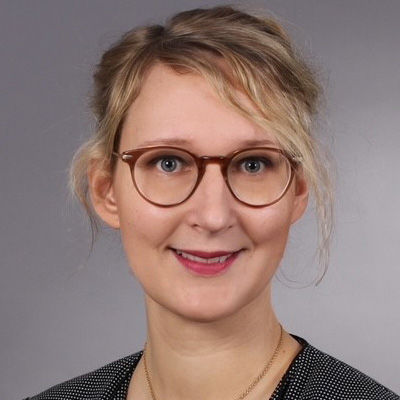
Birgit Vogt (MSc)
Diplom Pharmacist; Medication Safety Officer, German Medical Association
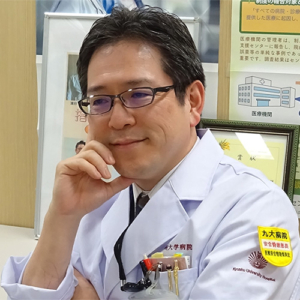
Dr. Shin Ushiro
Deputy director, Professor and Divisional director of the Division of Patient Safety, Kyushu University Hospital
Dr. Shin Ushiro works as Chief Patient Safety Officer which is a mandatory position in hospital that provides advanced treatments. In relation to his talk in the current meeting, he wants to note that he works as a chair of the Ethical Committee in his workplace which deals with novel or unproved medication or clinical procedures. He also has worked on national adverse event reporting and learning system, no-fault compensation for cerebral palsy and hospital accreditation in the Japan Council for Quality Health Care (JQ) which is a third body in healthcare circle. International Society for Quality in Healthcare (ISQua) is another workplace in which he exchanges knowledge and expertise, and build network and take action with like-minded people globally.

Prof. Dr. Cordula Wagner
Executive Director of the Netherlands Institute for Health Services Research and Professor of Patient Safety, VU University Amsterdam/ Amsterdam University Medical Center
Prof. Cordula Wagner a health services researcher and principal investigator who has supervised a large variety of national and international research projects in the field of quality management, change management and patient safety in health care, especially hospital care. Originally, she studied physiotherapy and sociology.
Her main interest is the improvement of organisational structures and cultures to improve health care for patients. Therefore, it is important to find and evaluate valuable solutions improving healthcare for patients and supporting stakeholders engaged in healthcare. Based on scientific evidence, she strives for new knowledge and products supporting healthcare professionals and policy makers in their work, as well as monitoring day-to-day quality, safety risks and compliance to improve the sustainability of the healthcare system.
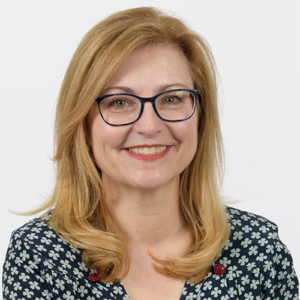
Prof. Johanna Westbrook
Professor and Director, Centre for Health Systems and Safety Research, Australian Institute of Health Innovation, Macquarie University.
Prof. Johanna Westbrook, PhD, FTSE, FAIDH, FACMI, FIAHSI, is internationally recognised for her research evaluating the effects of information and communication technology in health care, which has led to significant advances in our understanding of how clinical information systems deliver (or fail to deliver) expected benefits. Her highly applied research has supported translation of this evidence into policy, practice, and IT system design changes. In 2014 she was named Australian ICT professional of the year and in 2019 as the national research leader in the field of medical informatics. In 2020 Johanna was appointed as a Co-Director of the Safety, Quality and Informatics Leadership program, by the Harvard Medical School. Johanna has over 500 publications and been awarded >$55M in research grants.

Dr. Michelle White
Consultant Paediatric Anaesthetist at Great Ormond Street Hospital and Honorary Associate Professorships at University College London and King’s College London
Dr. White currently works as a Paediatric Cardiac Anesthesiologist at Great Ormond Street Hospital, London, and holds two Honorary Associate Professorships at University College London, and King’s College London. She has a PhD in Implementation Science and Global Surgery and published over 50 peer-reviewed scientific papers (over half of which relate to access and quality of global surgery and anaesthesia). From 2012-2017 Dr. White worked for the international surgical charity Mercy Ships as the Deputy Chief Medical Officer working with Ministries of Health in a variety of sub-Saharan African countries. Dr. White led nationwide implementations of the WHO surgical safety checklist in Madagascar, Benin and Cameroon.
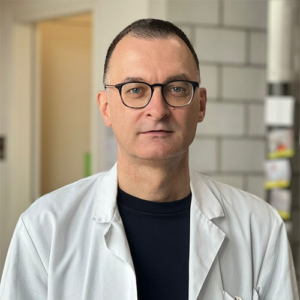
PD, Dr. med. Walter Zingg
Head, Infection Prevention and Control Programme, University Hospital Zurich
PD Dr Walter Zingg graduated at the University of Zurich, Switzerland. After basic research and achieving degrees in paediatrics and infectious diseases, he worked at the University of Geneva Hospitals and Imperial College London in infection prevention and control, before returning to the University Hospital Zurich. His publication list includes original articles in peer-reviewed journals and various book chapters on infection prevention and control. He coordinated the EC-funded project “PROHIBIT” and the ECDC-initiated project “SIGHT” that defined key components for effective infection prevention and control. Today, he coordinates the EC-funded project “REVERSE” on emerging antimicrobial resistance in Europe, and he organizes the national point prevalence survey on healthcare-associated infections and antimicrobial use in Switzerland.
Workshop Moderators
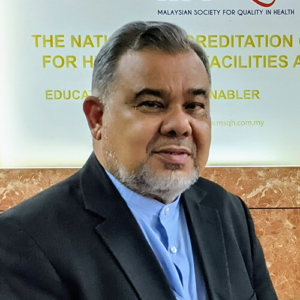
Associate Professor Dr. Muhammad Abdul Kadar Bin C.K. Marikar
Consultant MSQH (Malaysian Society for Quality in Health –National accreditation Body for Healthcare Facilities and Services.)
A physician by training with a post graduate degree in Hospital & Health Services Management (UK) and Masters in Public Health. Serves the Ministry of Health Malaysia in various levels from Clinicians, Medical Directors and Head of Quality Standards Unit in the Ministry. Involve directly in the development of standards, and implementation and training of the Malaysian Healthcare Accreditation Programme for hospitals since 1997, Medical Clinics since 2012 and Chronic Dialysis Treatment since 2013,and Dental Clinics since 2019.
Dr Kadar Marikar was the secretary to MSQH since 1998 to 2016.Since 1997 he provided technical support in the operations and implementation of the Accreditation programme while working in the Ministry of Health Malaysia till July 2001 and also while working as a consultant in Saudi Arabia till 2007. He was appointed as the CEO of Malaysian Society for Quality in Health (MSQH); the Malaysian Accreditation Organisation for Healthcare Facilities and Services since 2006 until 30 June 2020. In 2014 collaborated with WHO to form the Patient For Patient Safety Malaysia which was later launched by the then Minister of Health Malaysia.
Dr Kadar was appointed as a TQM Consultant; serving the King Fahd Armed Forces Hospital Jeddah and also supported the Military Health Services Kingdom of Saudi Arabia from 2001 to 2007. He was also appointed as Associate Professor at the Department of Community Medicine, Faculty of Medicine University Putra Malaysia since 2004. A visiting consultant to KARS (Indonesian Accreditation Body for Hospitals ) from 2016 to 2019.He has successfully positioned MSQH as an organisation recognised and certified Internationally by ISQua and healthcare professionals and peers worldwide for all four Programmes namely, Certification for Organisation, Surveyors Training and Standards Development since 2008 to 2024.
Currently he is a member of the ISQua Accreditation Council (since 1999) and a consultant to this program, an ISQua expert and ISQua surveyor since 2004.
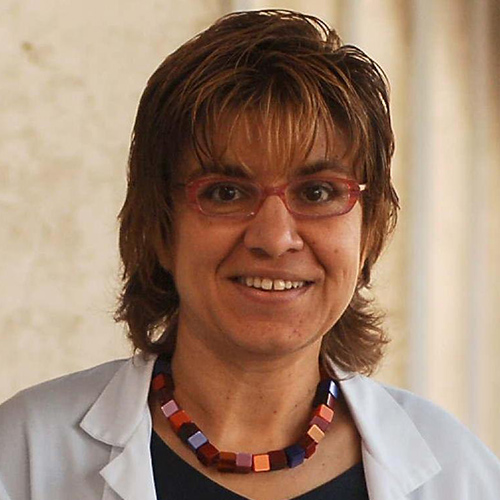
Dr. Susana Lorenzo Martinez, MD, MPH
Head of Quality and Patient Management Area at the Hospital Universitario Fundación Alcorcón, Servicio Madrileño de Salud
Training: Doctor of Medicine (PhD), Master in Public Health Policy Administration, Diploma in Healthcare Quality Assessment. EOQ Quality Systems Manager in Healthcare. Senior Management Program and Health Institutions IESE Business School. Master of Continuing Education in Patient Management.
Teaching accreditation from the Health Sciences Committee of the Teacher Evaluation Program of the Spanish National Agency for Quality Assessment and Accreditation (ANECA).
Editor of the Journal of Healthcare Quality Research.
I have been president of the Spanish Society of Healthcare Quality.
Hirsch Index: 20 (Web of Science Thomson Reuters and Scopus)
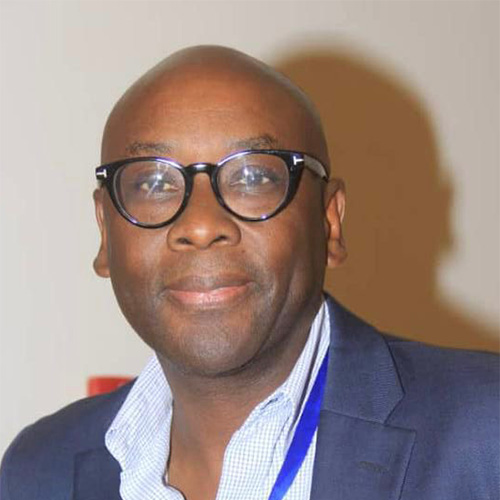
Dr. Mirfin Mpundu, PH, MBA, MPH, RPH
Director of ReAct (Action on Antibiotic Resistance) Africa, Partnership & Engagement Lead International Centre for Antimicrobial Solutions (ICARS)
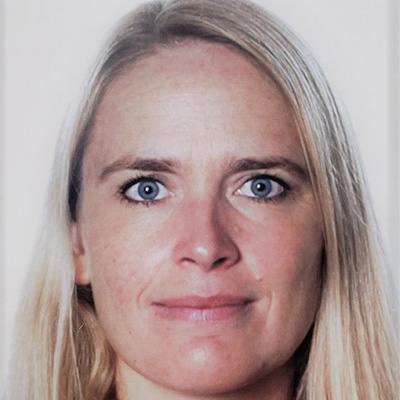
Dr. Sarah Paulin-Deschenaux
Technical Officer (Antimicrobial resistance), World Health Organization
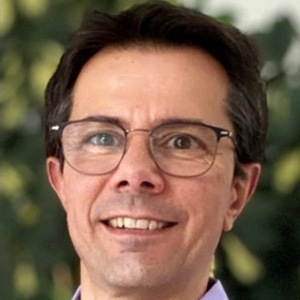
Dr. Javier Yugueros-Marcos
Head of Antimicrobial Resistance & Veterinary Products Department, World Organisation for Animal Health
Javier Y. Marcos has a solid history of working in antimicrobial resistance (AMR), with eighteen years of experience in the development and commercialization of diagnostics tests for infectious diseases, both for human and animal health. Graduated as Doctor in Veterinary Medicine in 1997, he also holds a PhD in Microbiology & Molecular Biology from the Leon University, Spain. By the end of 2021, he was appointed as Head of the AMR & Veterinary Products Department at the World Organization for Animal Health, being accountable for the enhanced quality of veterinary medicinal products, and the coordination of actions supporting a responsible and prudent use of antimicrobials in animal health worldwide.
